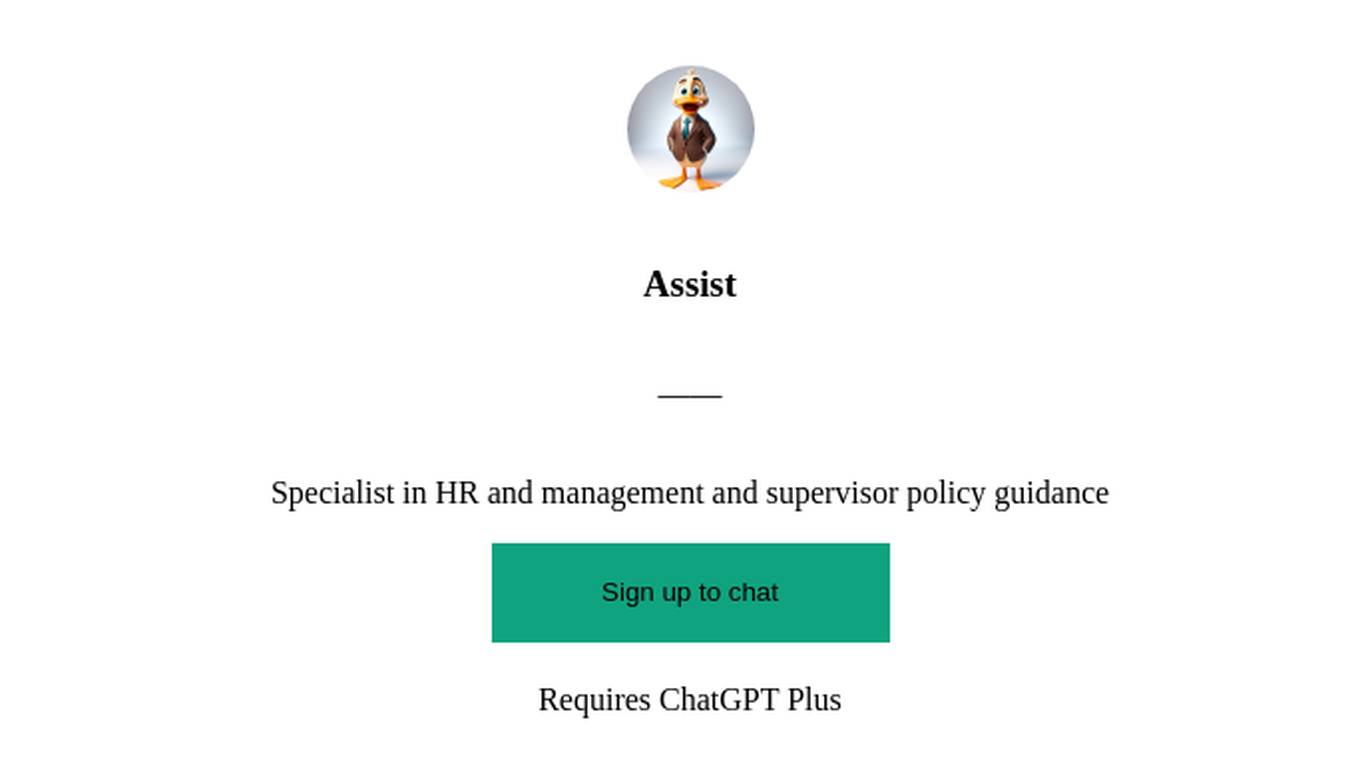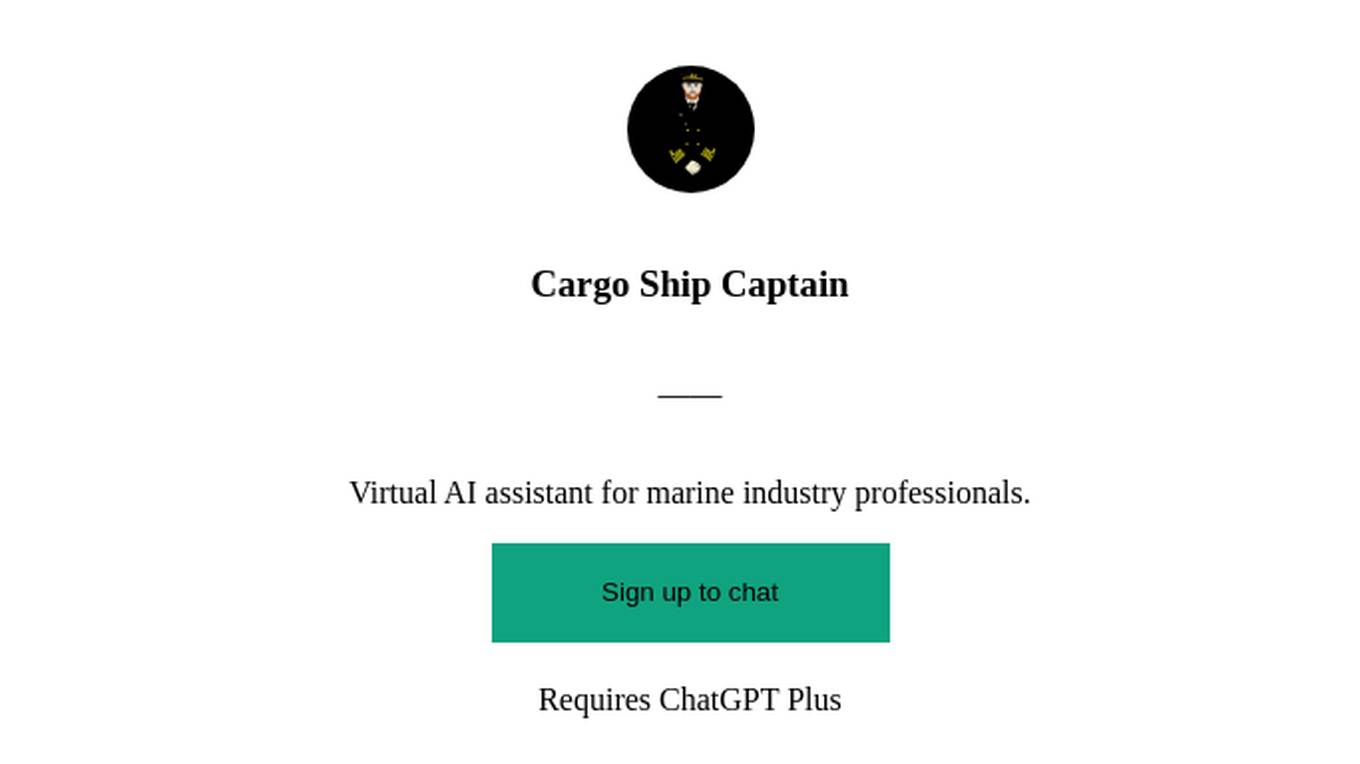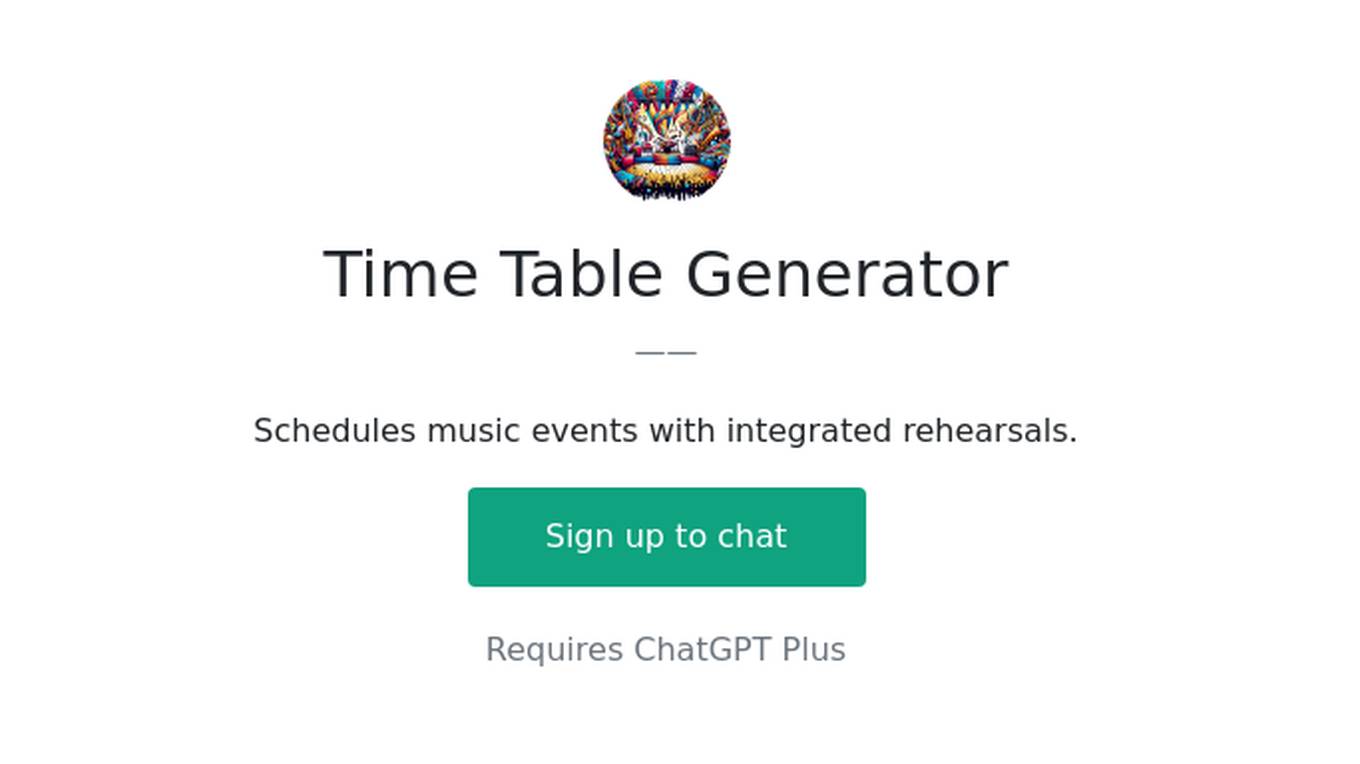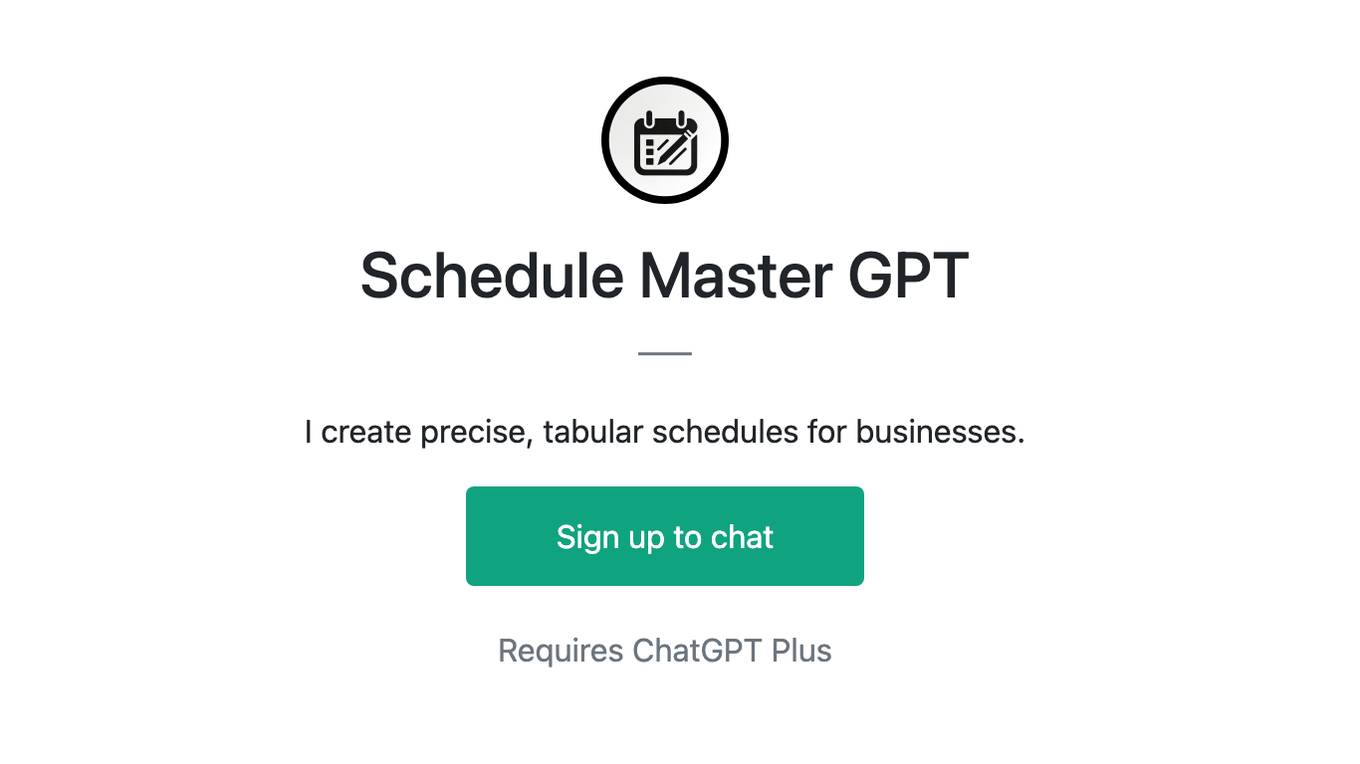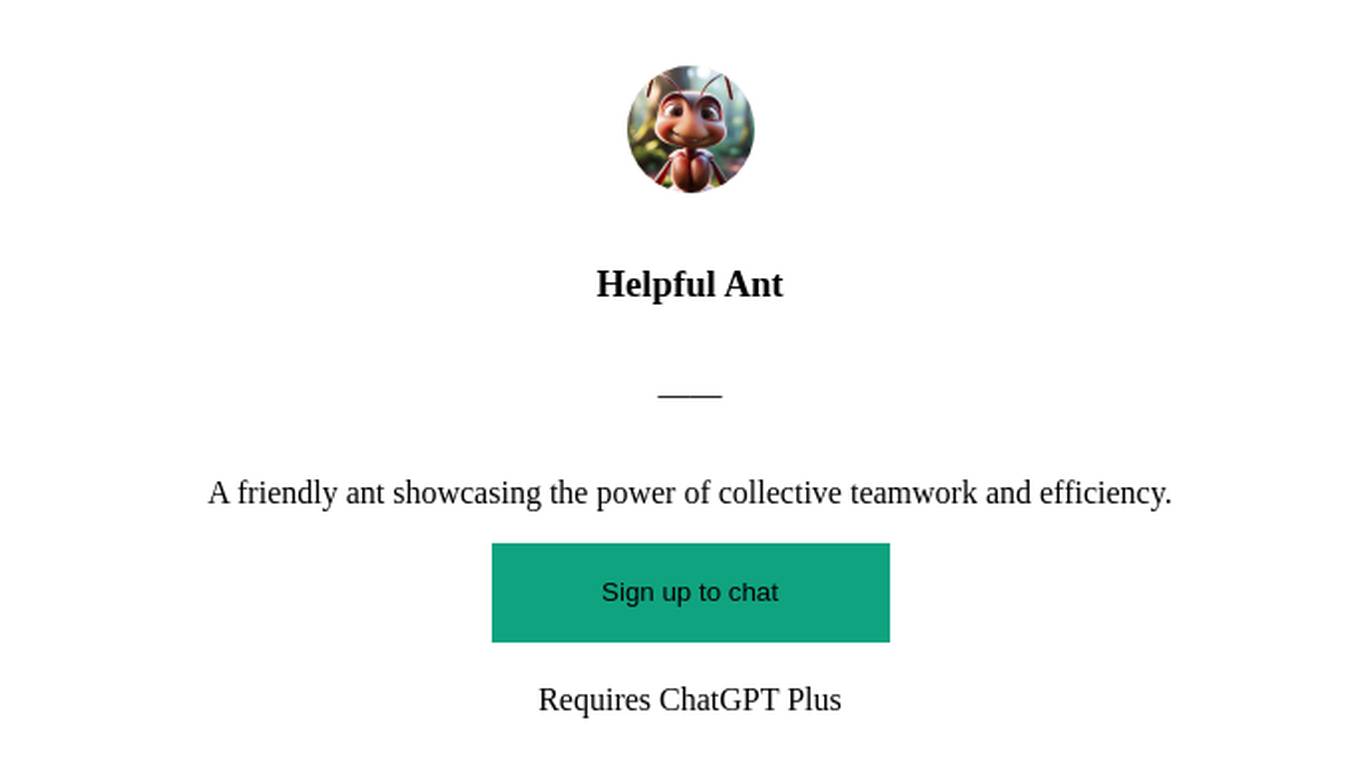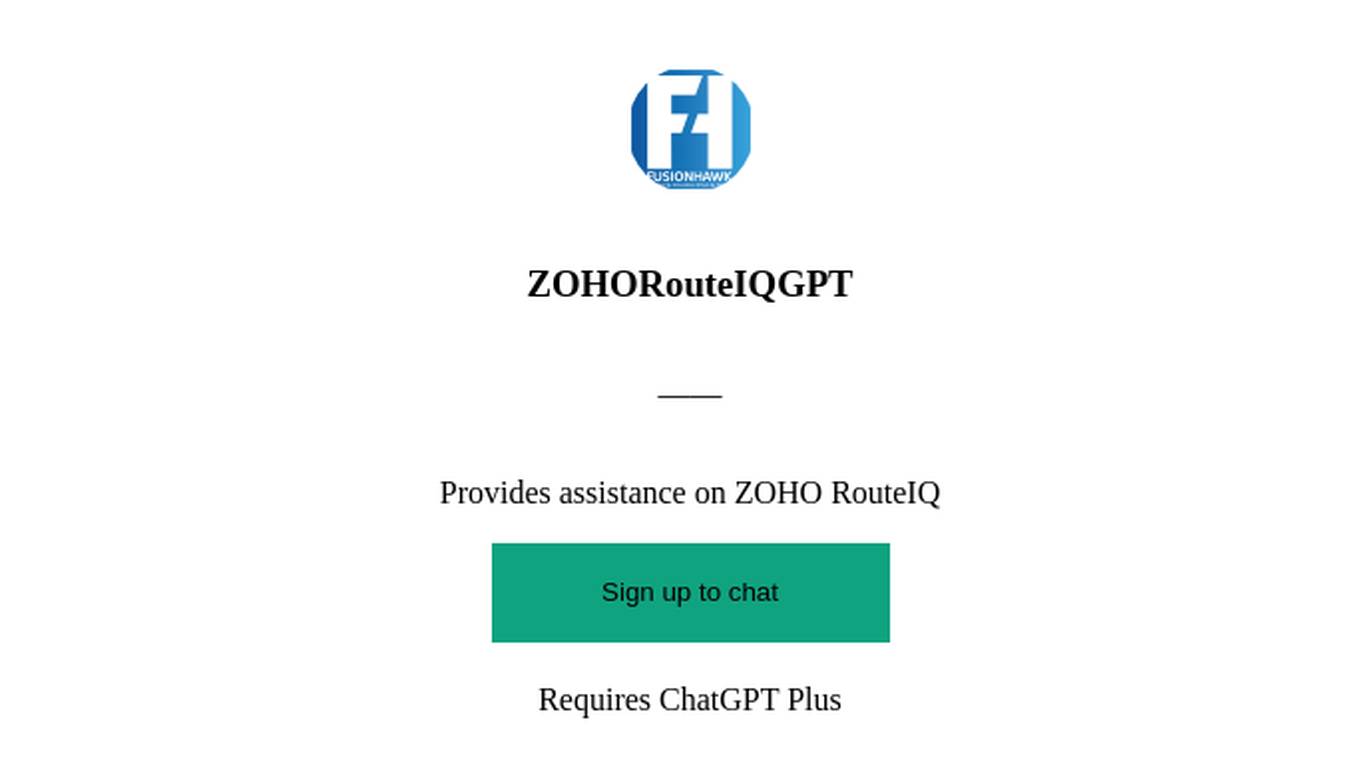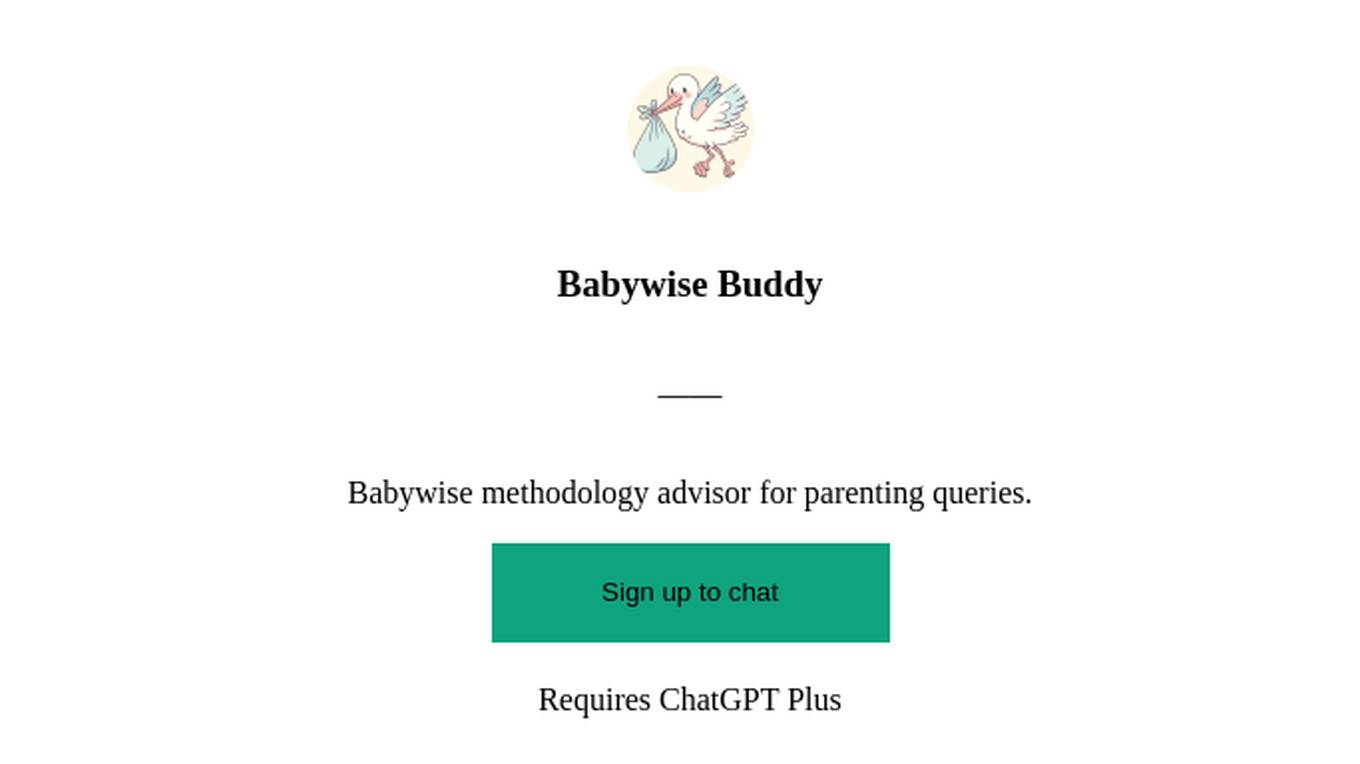Best AI tools for< Manage Schedules >
20 - AI tool Sites
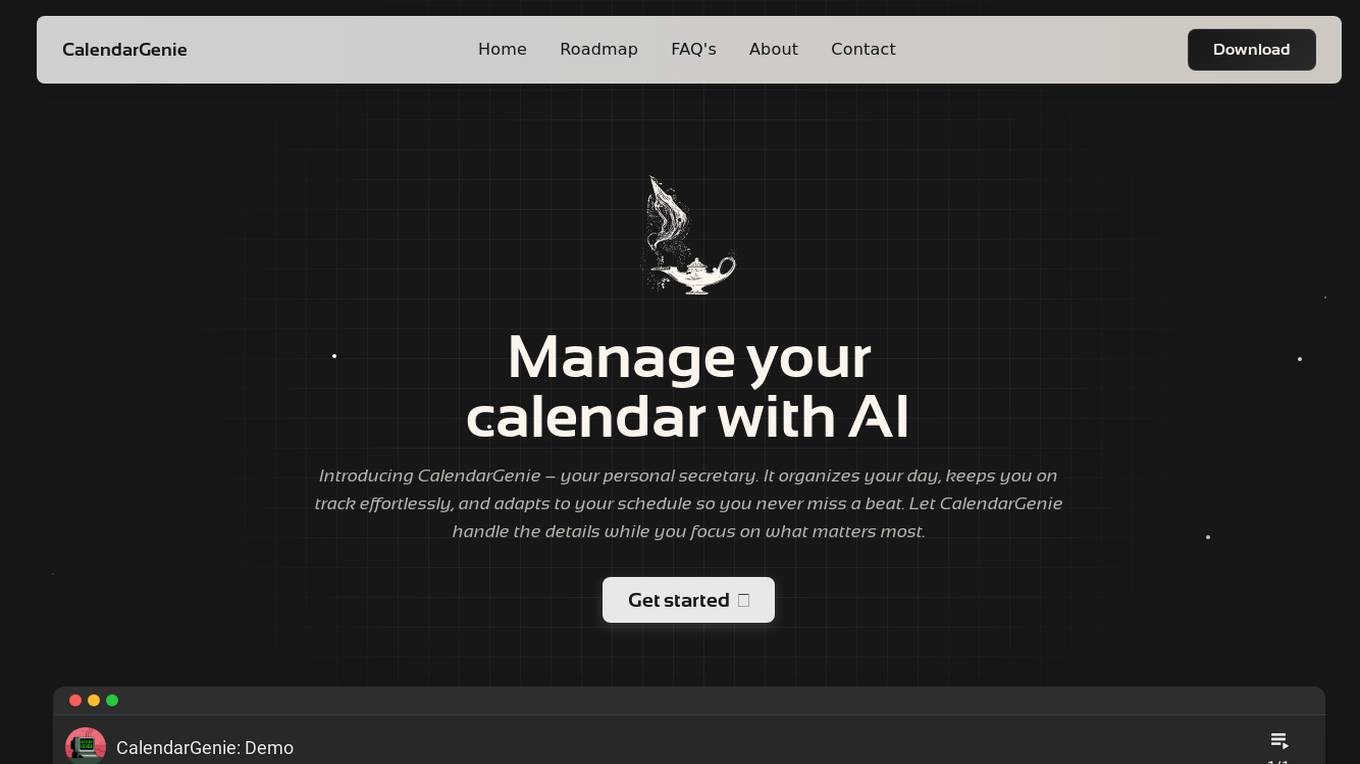
CalendarGenie
CalendarGenie is an AI calendar assistant designed to help users manage their schedules efficiently. It acts as a personal secretary, organizing daily tasks, keeping users on track, and adapting to their unique routines. With features like seamless scheduling, easy schedule modification, and event cancellation, CalendarGenie aims to simplify time management and prioritize what truly matters to users.

Swift
Swift is an AI-powered voice assistant that utilizes cutting-edge technologies such as Groq, Cartesia, VAD, and Vercel to provide users with a fast and efficient voice interaction experience. With Swift, users can perform various tasks using voice commands, making it a versatile tool for hands-free operation in different settings. The application aims to streamline daily tasks and enhance user productivity through seamless voice recognition capabilities.
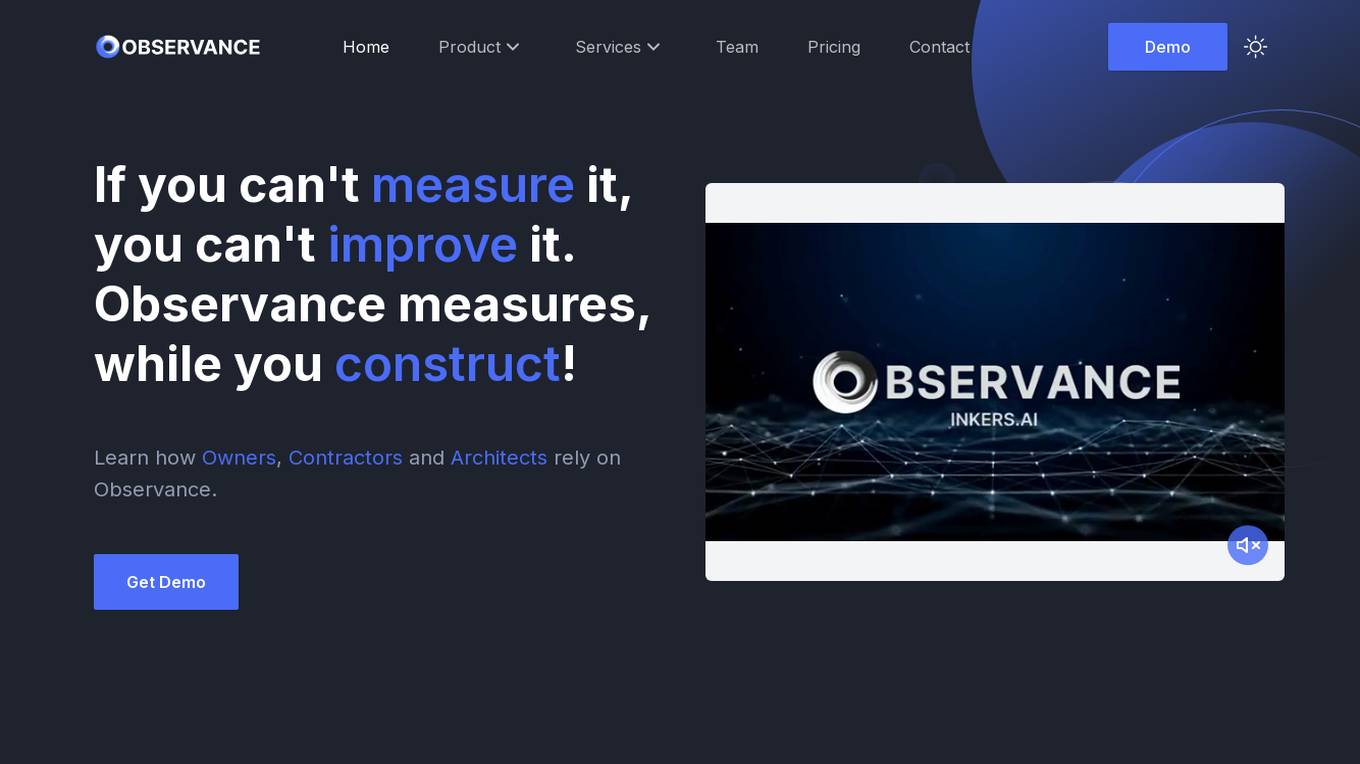
Observance
Observance is an AI-powered construction management platform developed by Inkers.ai. It integrates advanced AI technologies to provide features such as 4D BIM, Snag List, Project Milestones, Scan to BIM, Thermals Analytics, and Deviation Analysis. The platform offers real-time tracking, smart scheduling, BIM integration, analytics dashboard, and next-generation construction AI capabilities. Observance helps owners, contractors, and architects in tracking, managing, and executing construction projects efficiently. It also offers defect detection, mesh segmentation, objects identification, and health & safety monitoring using AI algorithms.
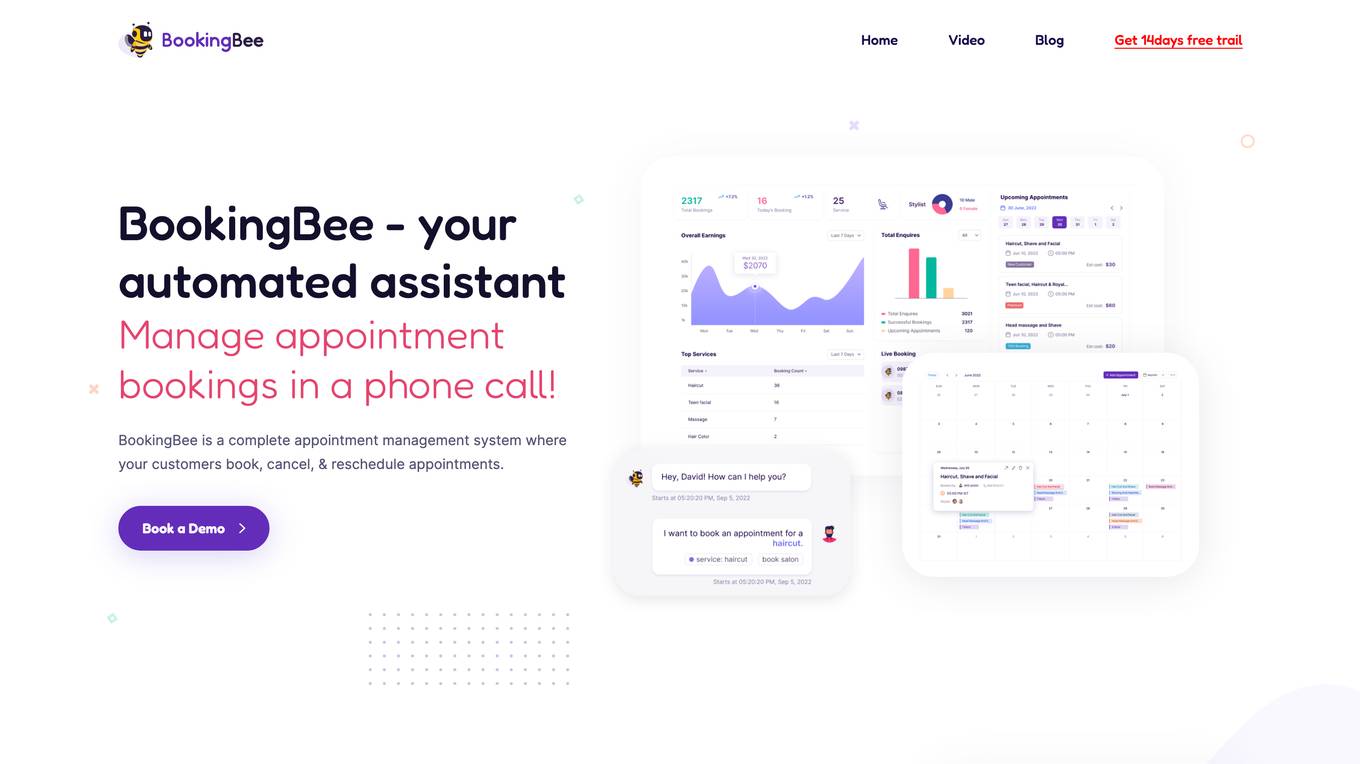
BookingBee.ai
BookingBee.ai is an AI-powered appointment scheduling software designed specifically for salons and spas. It automates bookings, manages schedules, handles client coordination, and reduces no-shows effortlessly. The AI assistant ensures a seamless guest journey from booking to check-in, offering industry-specific solutions for beauty businesses. With features like 24/7 appointment booking, multi-language support, easy integration, and parallel call handling, BookingBee.ai empowers salon owners to focus on delivering great client experiences and growing their businesses.
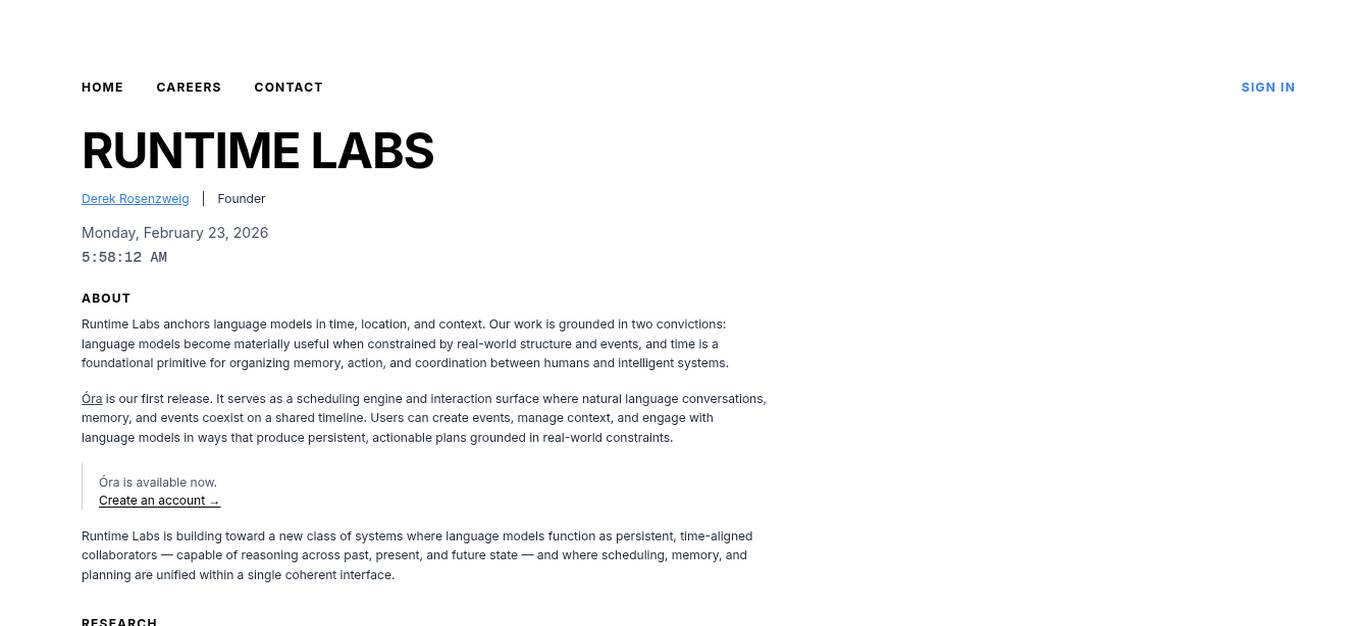
Runtime Labs
Runtime Labs is an AI application that anchors language models in time, location, and context. Their first release, Óra, serves as a scheduling engine and interaction surface where natural language conversations, memory, and events coexist on a shared timeline. Users can create events, manage context, and engage with language models to produce persistent, actionable plans grounded in real-world constraints. Runtime Labs is building systems where language models function as time-aligned collaborators, capable of reasoning across past, present, and future states.
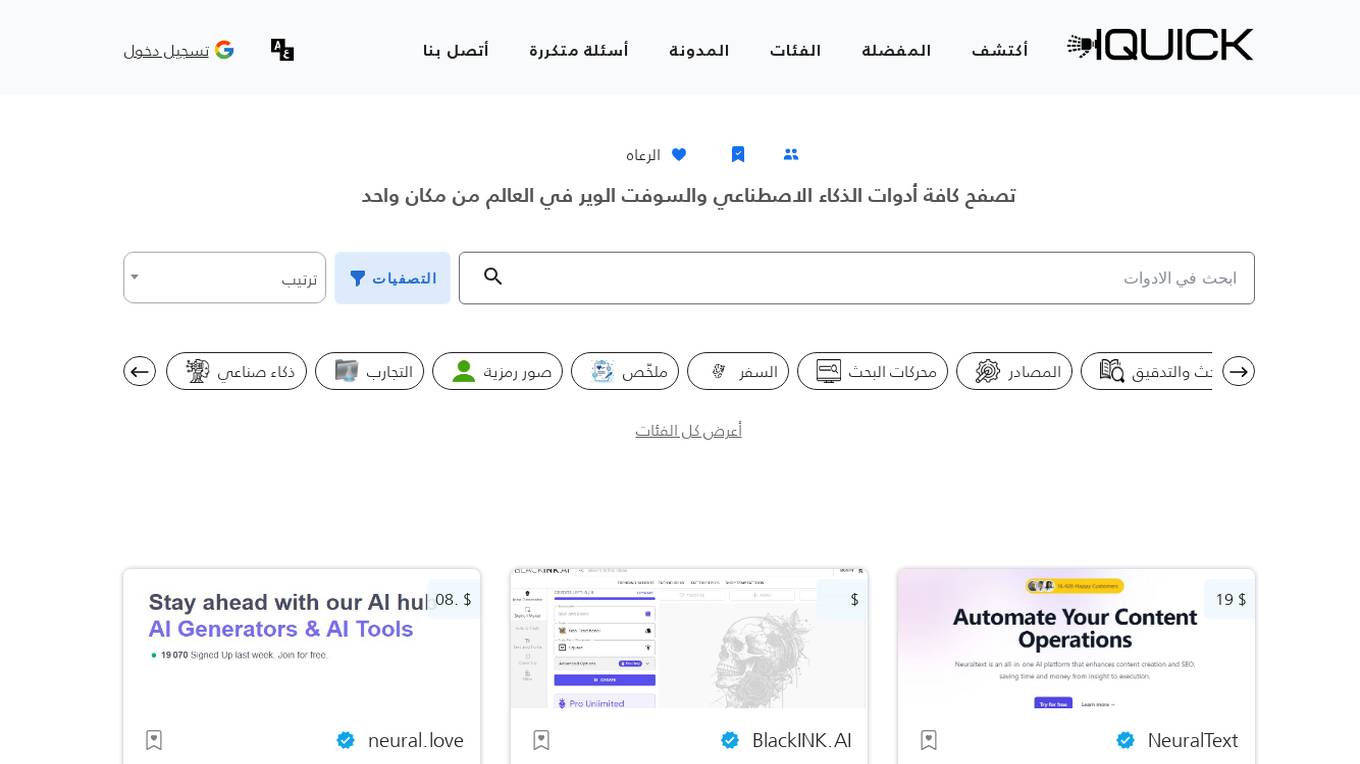
Resha
The website Resha offers a comprehensive collection of artificial intelligence and software tools in one place. Users can explore various categories such as artificial intelligence, coding, art, audio editing, e-commerce, developer tools, email assistants, search engine optimization tools, social media marketing, storytelling, design assistants, image editing, logo creation, data tables, SQL codes, music, text-to-speech conversion, voice cloning, video creation, video editing, 3D video creation, customer service support tools, educational tools, fashion, finance management, human resources management, legal assistance, presentations, productivity management, real estate management, sales management, startup tools, scheduling, fitness, entertainment tools, games, gift ideas, healthcare, memory, religion, research, and auditing.
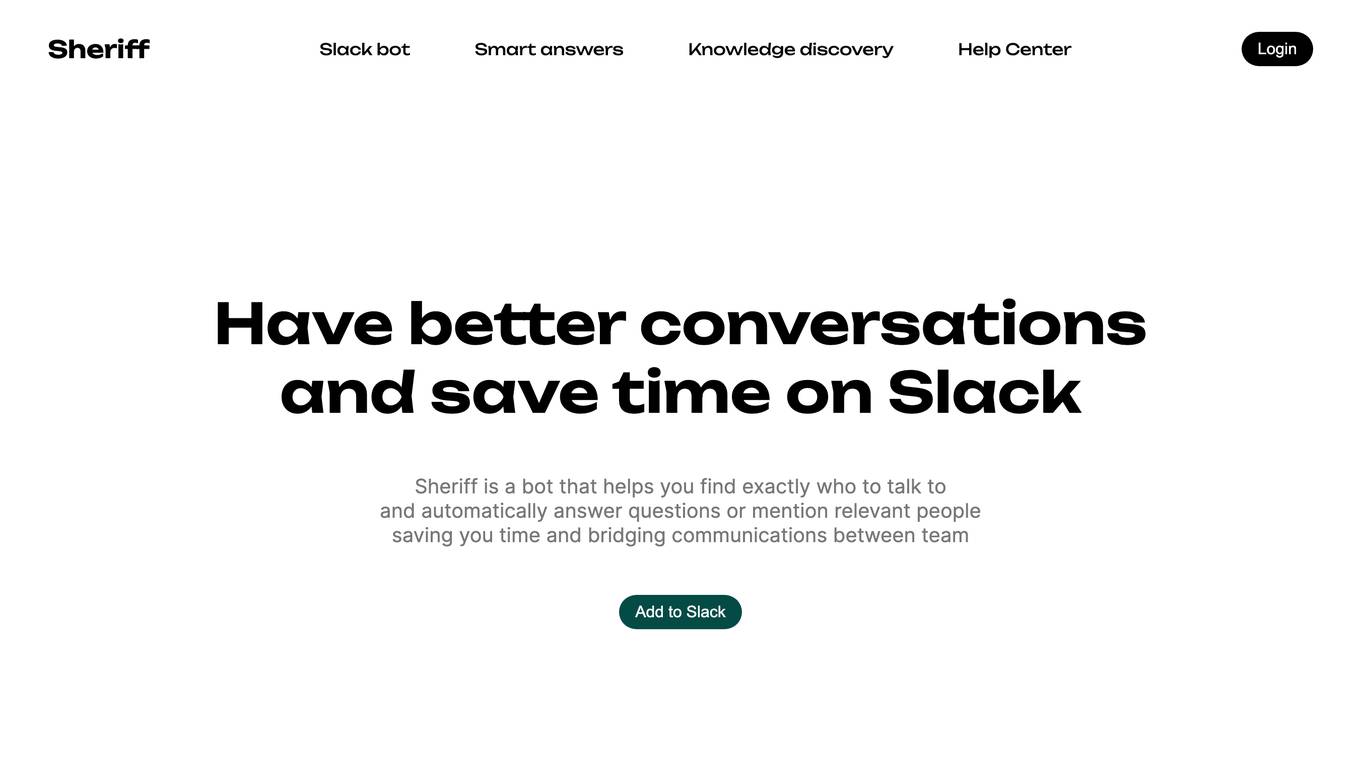
Sheriff
Sheriff is a Slack bot that helps you save time with rotating rosters and AI language understanding. It allows you to create a rotating roster of users in a channel that will become the designated @sheriff for a period of time. Whenever a user comes into this channel, they can tag @sheriff which will in turn notify the current user in the roster. This simple functionality can be used in multiple ways: Sheriff acting as the first point of contact for any questions from outside the team, Use sheriff in a support channel to answer incoming questions, Use sheriff to track a recurring role that cycles between team members.
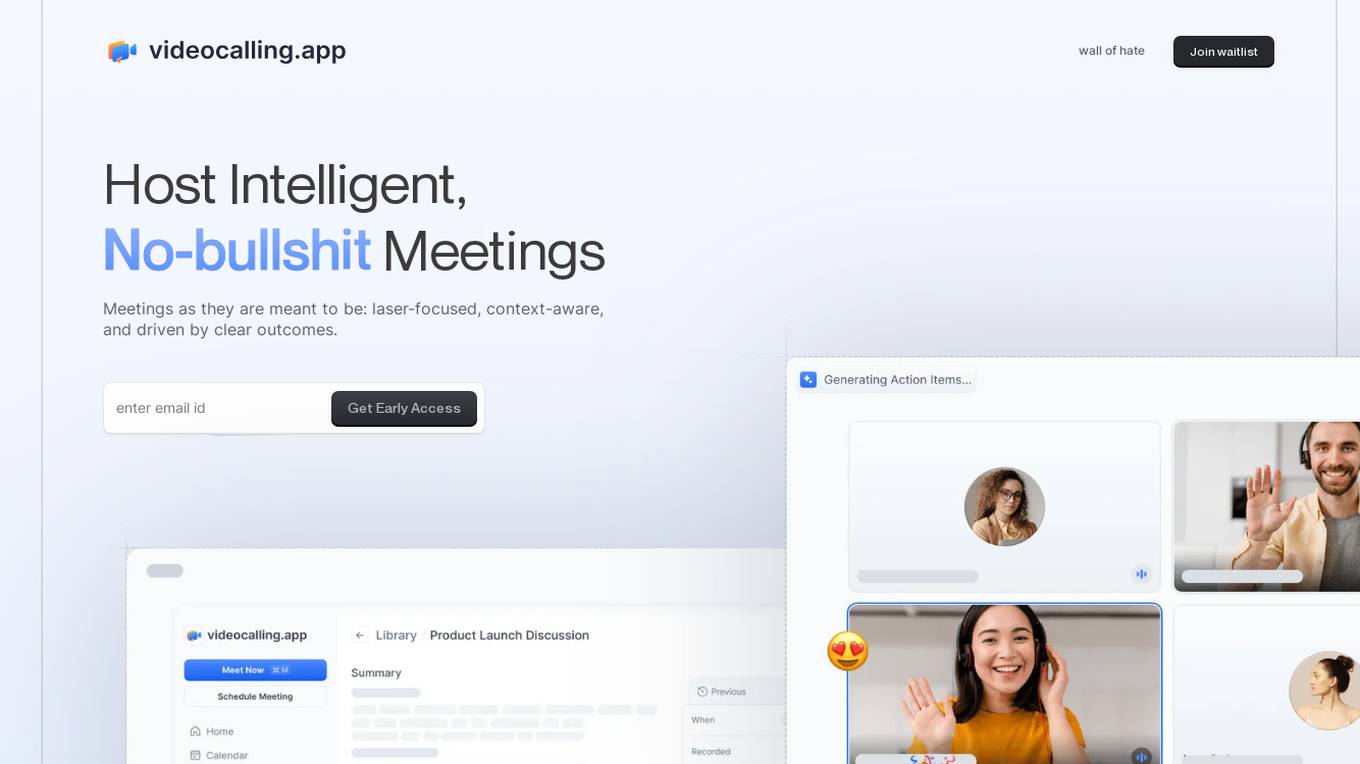
The Video Calling App
The Video Calling App is an AI-powered platform designed to revolutionize meeting experiences by providing laser-focused, context-aware, and outcome-driven meetings. It aims to streamline post-meeting routines, enhance collaboration, and improve overall meeting efficiency. With powerful integrations and AI features, the app captures, organizes, and distills meeting content to provide users with a clearer perspective and free headspace. It offers seamless integration with popular tools like Slack, Linear, and Google Calendar, enabling users to automate tasks, manage schedules, and enhance productivity. The app's user-friendly interface, interactive features, and advanced search capabilities make it a valuable tool for global teams and remote workers seeking to optimize their meeting experiences.
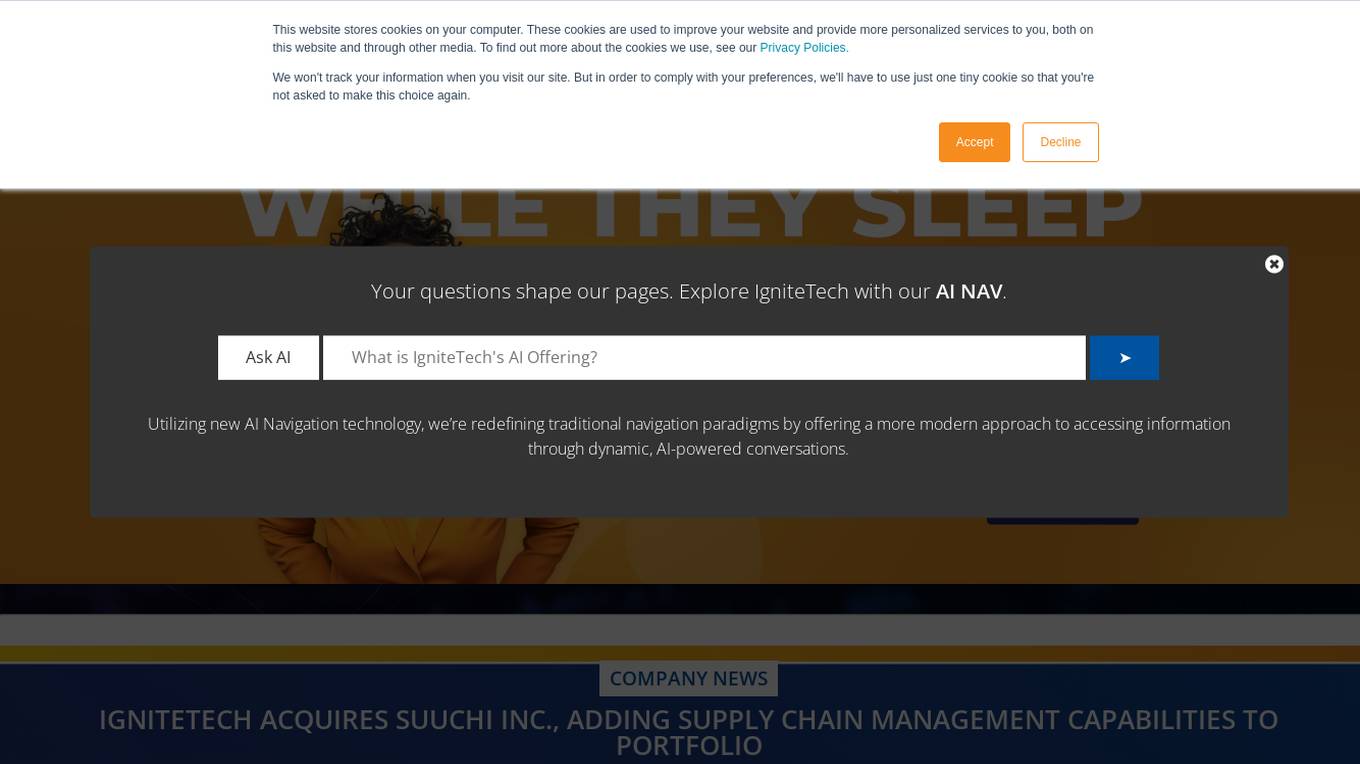
IgniteTech
IgniteTech is an AI application that offers innovative solutions and services for businesses. It specializes in transforming business communication through human-AI collaboration, revolutionizing field force management, and redefining human-AI collaboration. IgniteTech aims to save and stabilize software and businesses, innovate products to the AWS Cloud, and add unlimited value with a Netflix-style licensing model. The company has a strong focus on AI technology and its applications across various industries.
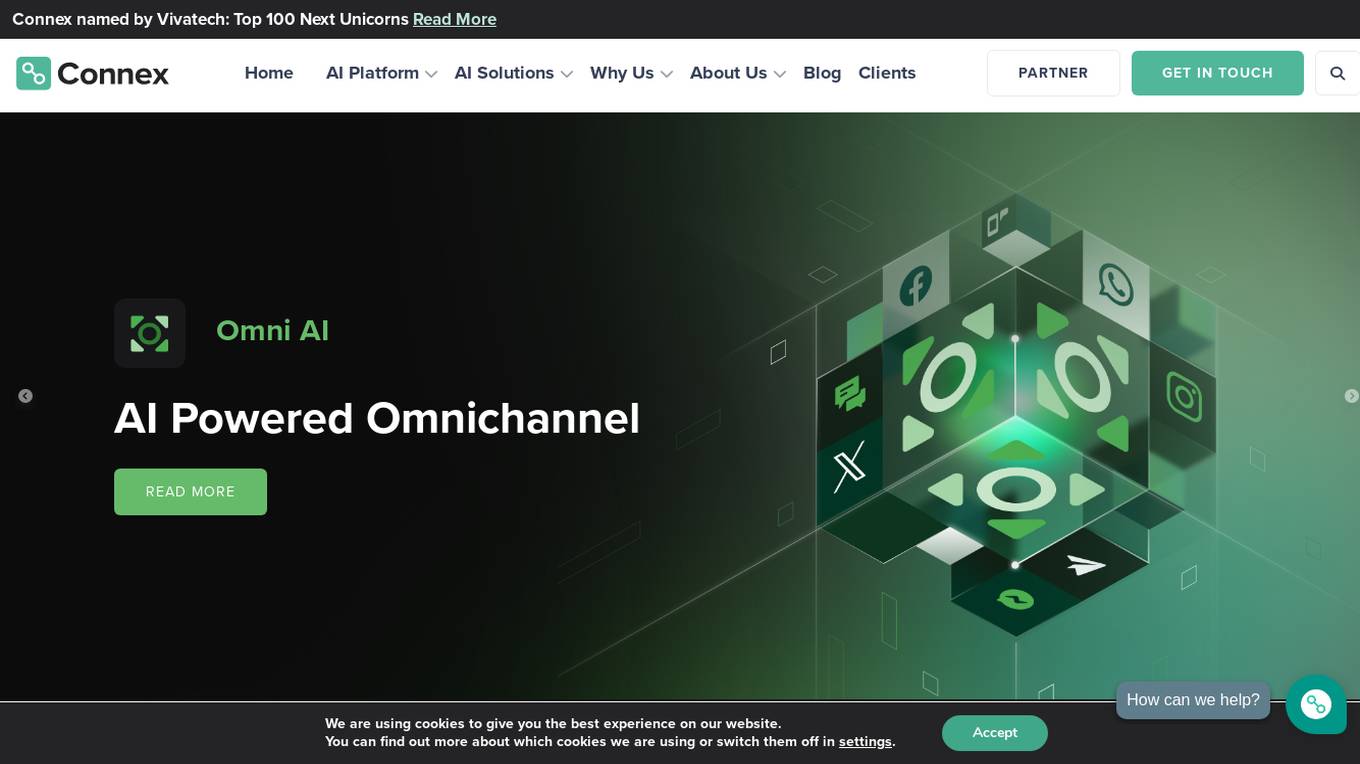
Connex AI
Connex AI is an advanced AI platform offering a wide range of AI solutions for businesses across various industries. The platform provides cutting-edge features such as AI Agent, AI Guru, AI Voice, AI Analytics, Real-Time Coaching, Automated Speech Recognition, Sentiment Analysis, Keyphrase Analysis, Entity Recognition, LLM Topic-Based Modelling, SMS Live Chat, WhatsApp Voice, Email Dialler, PCI DSS, Social Media Flow, Calendar Schedular, Staff Management, Gamify Shop, PDF Builder, Pricing Matrix, Themes, Article Builder, Marketplace Integrations, and more. Connex AI aims to enhance customer engagement, workforce productivity, sales, and customer satisfaction through its innovative AI-driven solutions.

Akiflow
Akiflow is a time-blocking digital planner and calendar application powered by AI. It offers a comprehensive suite of features to help users manage tasks, meetings, and projects efficiently. With integrations, task management, time management, and AI workflows, Akiflow aims to streamline productivity for founders, operators, and doers. The application syncs work and personal calendars, provides smart time slots, and offers an executive AI assistant for scheduling and task prioritization. Akiflow is designed to save users time and enhance productivity by automating tasks and providing personalized nudges.
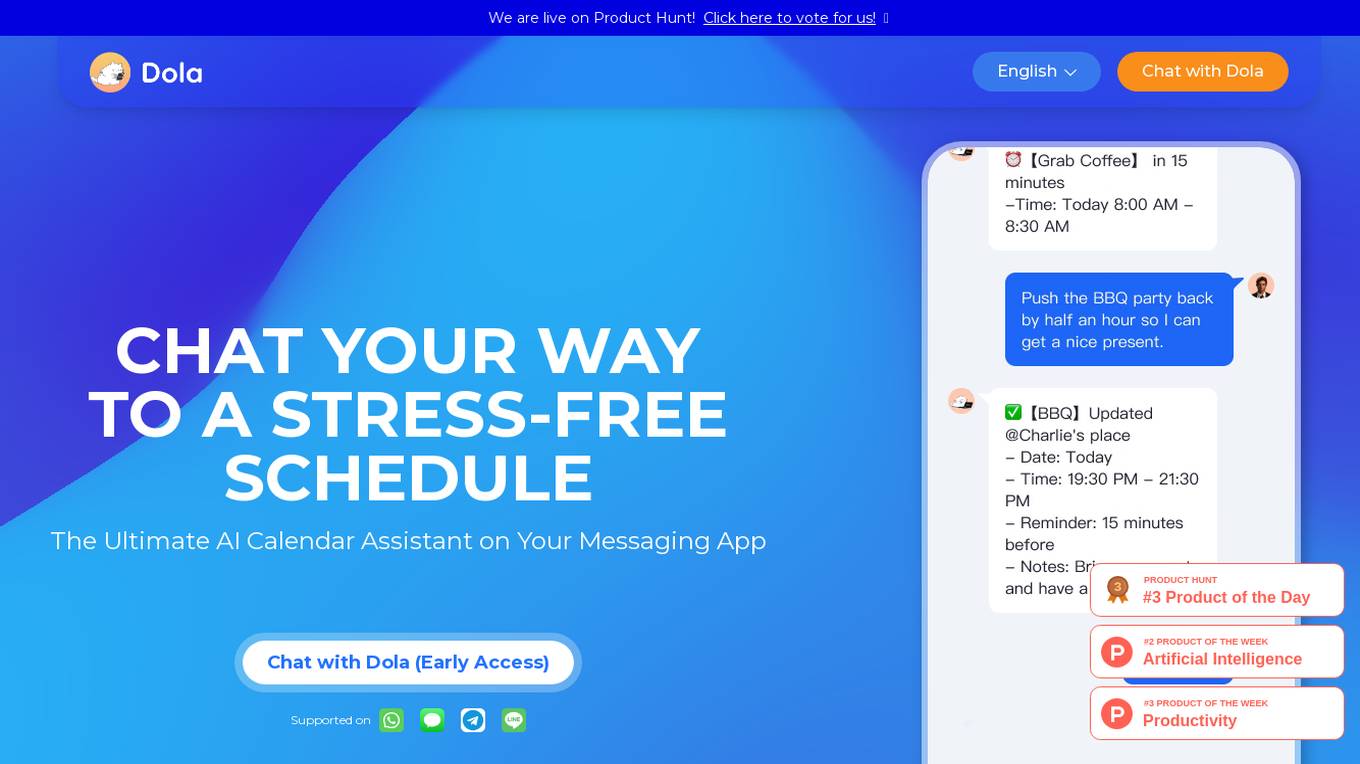
Dola
Dola is an AI-powered calendar assistant that helps you manage your schedule through messaging apps. With Dola, you can add events, edit them, and get reminders, all through natural language conversations. Dola also integrates with your existing calendar apps, so you can keep all your events in one place.
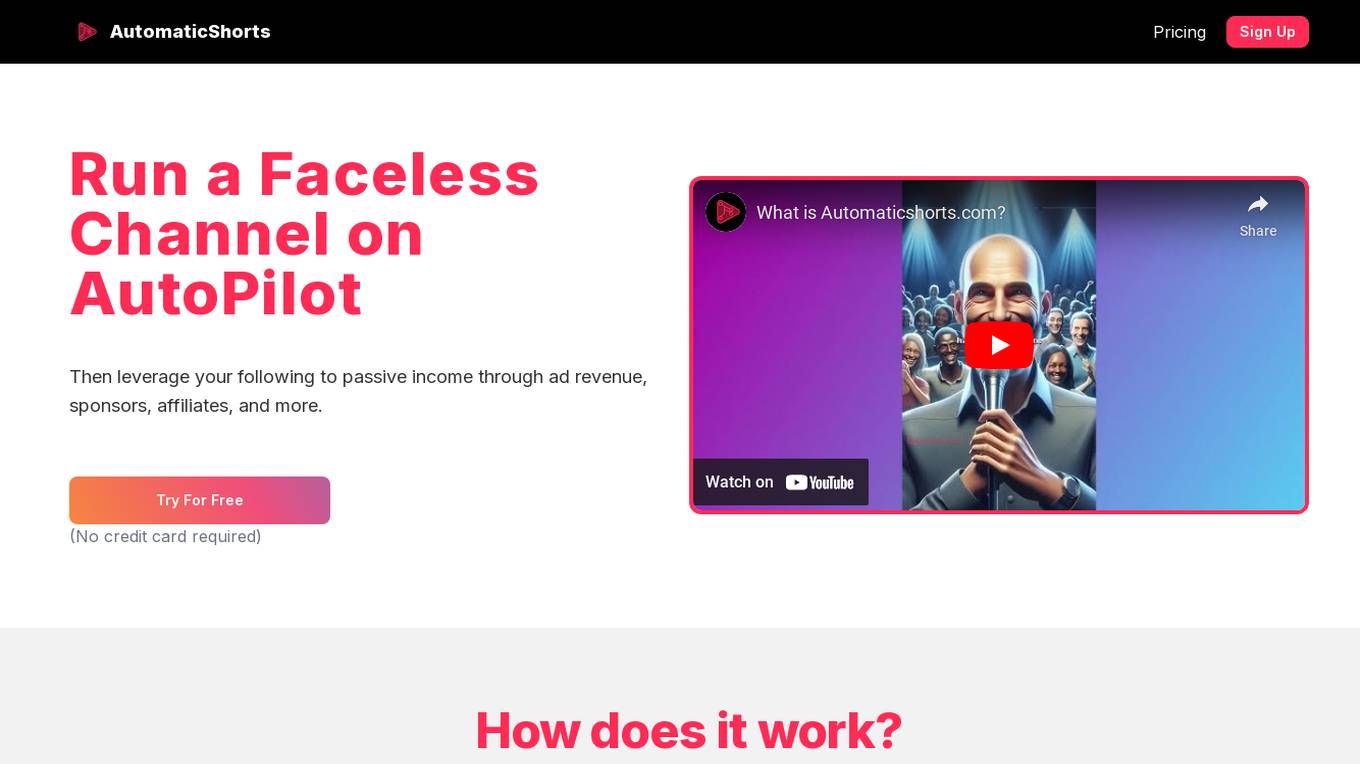
AutomaticShorts
AutomaticShorts is an AI-powered platform that enables users to run a faceless channel on autopilot, leveraging their following to generate passive income through ad revenue, sponsors, affiliates, and more. The platform automates the process of shooting, voicing, and editing videos, allowing creators to focus on monetization strategies and audience engagement. With features like series creation, video customization, performance analysis, and passive income generation, AutomaticShorts empowers creators to effortlessly grow their online presence and revenue streams.

Dola
Dola is an AI calendar assistant that helps users schedule their lives efficiently and save time. It allows users to set reminders, make calendar events, and manage tasks through natural language communication. Dola works with voice messages, text messages, and images, making it a versatile and user-friendly tool. With features like smarter scheduling, daily weather reports, faster search, and seamless integration with popular calendar apps, Dola aims to simplify task and time management for its users. The application has received positive feedback for its accuracy, ease of use, and ability to sync across multiple devices.
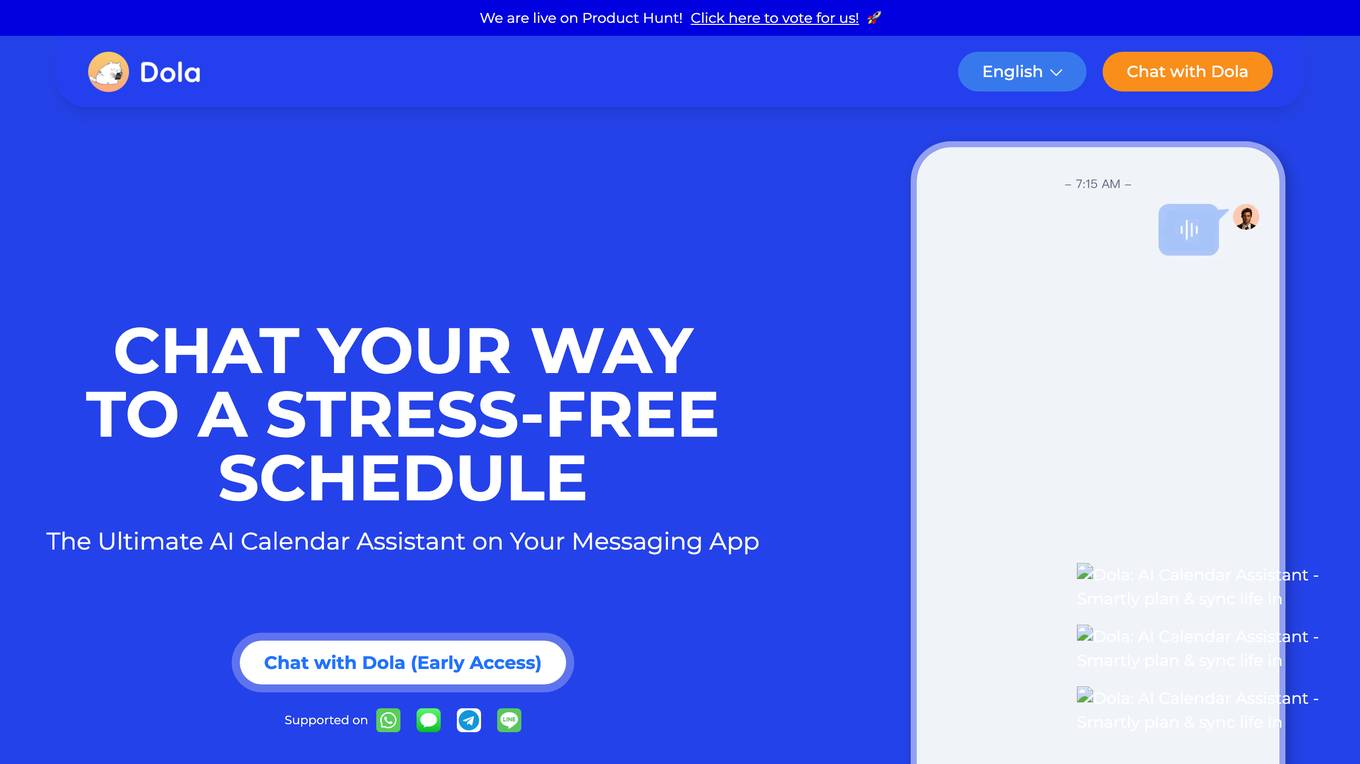
Dola
Dola is an AI-powered calendar assistant that helps you manage your schedule through messaging apps. With Dola, you can add events, edit them, and get reminders, all without having to fill out tedious forms or quote previous calendar events. Dola also supports group chats, so you can easily schedule events with friends and family. Dola is available on iOS, Android, and the web.
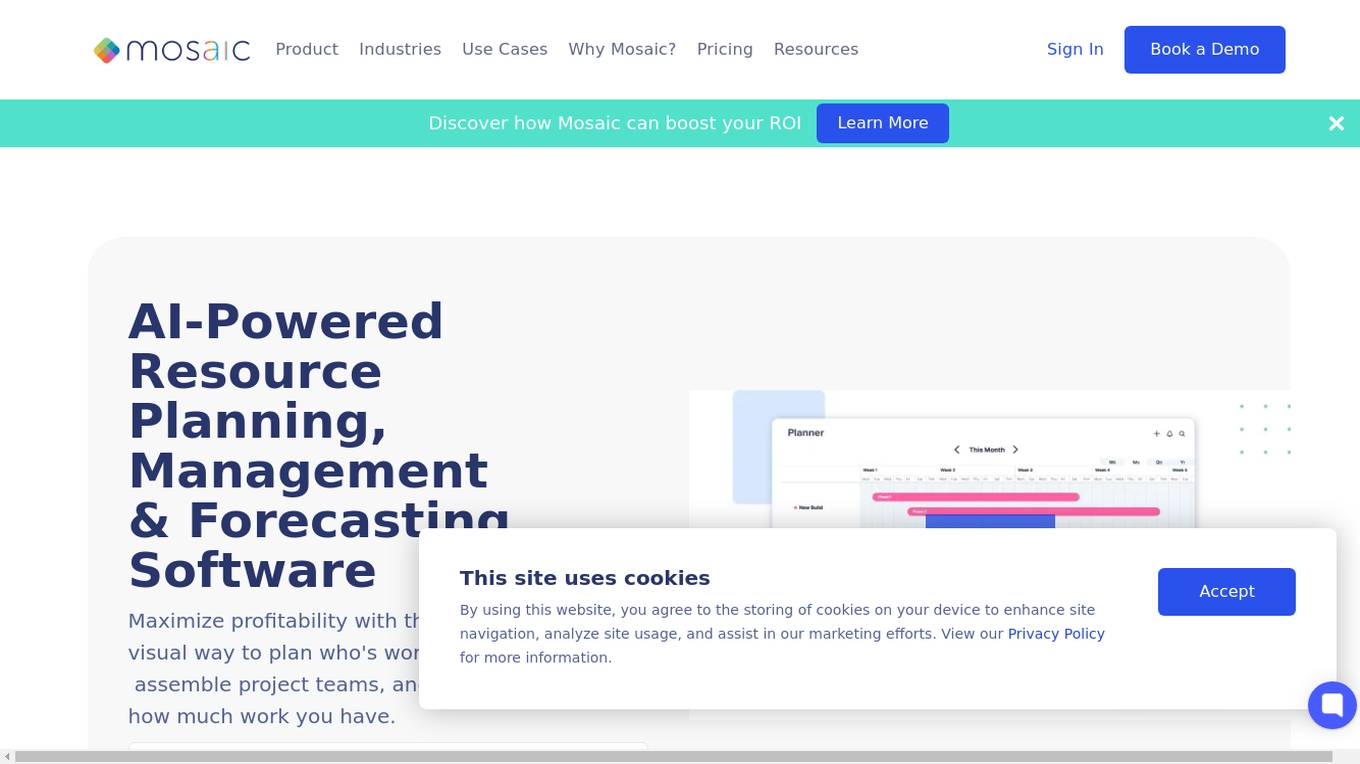
Mosaic
Mosaic is a modern, automated, and AI-powered resource planning, management, and forecasting software designed to maximize profitability by providing a fast, easy, and visual way to plan resource allocation, assemble project teams, and understand workload capacity. It offers features such as AI team building, workload forecasting, headcount planning, and capacity planning. Mosaic helps organizations improve planning efficiency, drive profitability, and reduce burnout by visualizing workload, managing people together, and building project schedules around actual capacity. The software provides real-time reports, out-of-the-box reporting, and dashboard analytics for better decision-making. Mosaic is collaborative, intuitive, and automated, making complex processes visual and easy to use.
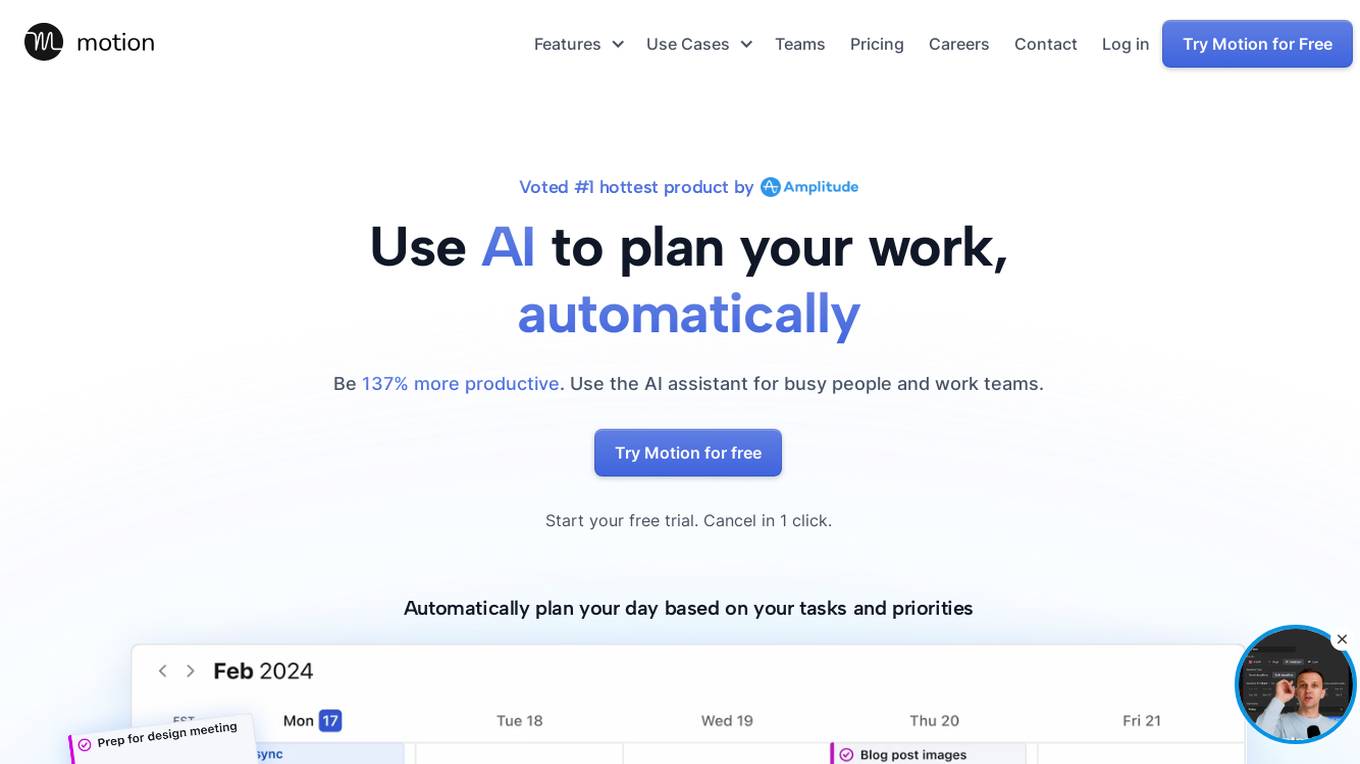
Motion
Motion is an AI Calendar Assistant that helps individuals and teams plan their work efficiently and effectively. It uses AI to automatically prioritize tasks, schedule meetings, track deadlines, and optimize schedules. Motion aims to maximize productivity, happiness, and satisfaction by streamlining project management and task organization. With features like task scheduling, task prioritization, project management, deadline tracking, calendar syncing, workload reporting, and automated meeting scheduling, Motion simplifies the planning process and enhances time management for users. The application is designed to cater to the needs of busy individuals, teams, and professionals across various industries.
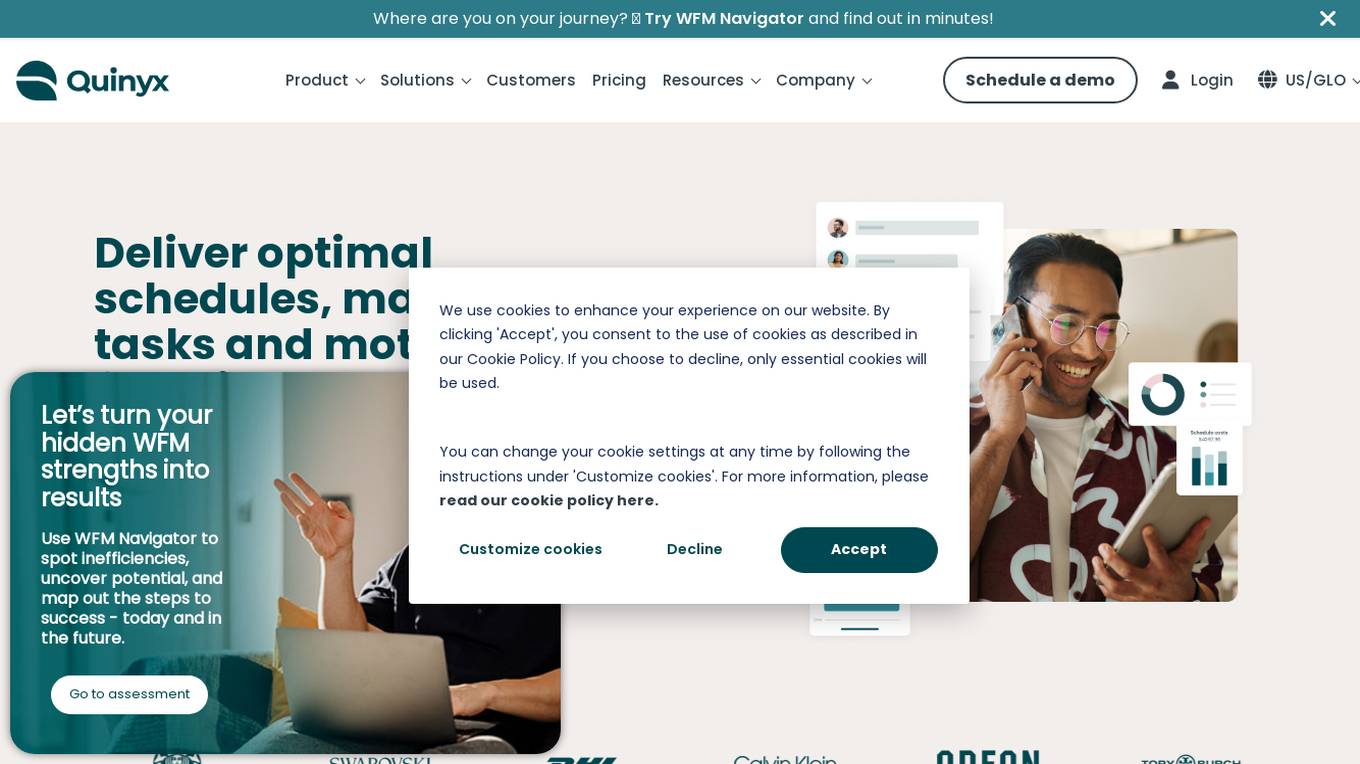
Quinyx
Quinyx is an AI-powered Workforce Management, Planning & Scheduling platform that helps businesses optimize their workforce, streamline scheduling, and engage frontline employees. It offers features such as demand forecasting, labor optimization, compliance checking, task management, and communication tools. Quinyx aims to enhance employee productivity, reduce scheduling admin time, and improve overall business performance through AI-driven solutions.
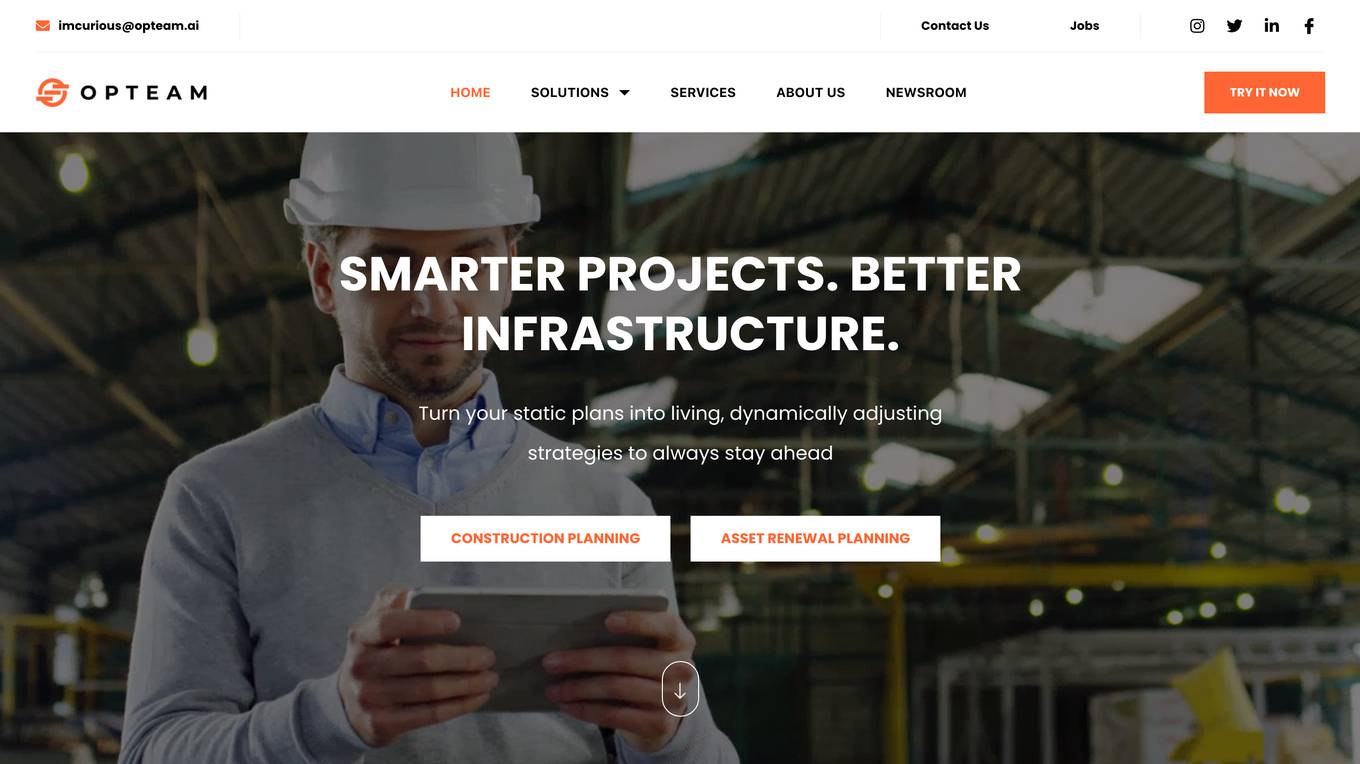
Opteam
Opteam is a construction project management software designed to help construction companies manage their projects efficiently. It offers features such as progress tracking, schedule analysis, real-time dashboards, and automated progress requests. Opteam aims to address the shortcomings of traditional construction project management software by providing dynamic solutions for smarter infrastructure management. The platform is user-friendly and allows users to track, monitor, and share project progress seamlessly.

Deep Space
Deep Space is an all-in-one AI-powered construction management software platform designed for mid-sized commercial builders in Australia and New Zealand. It replaces the need for multiple tools by providing a connected operating system that integrates costings, schedules, site teams, and systems. The platform offers features such as preconstruction, scheduling, procurement, commercial delivery, documentation, HSEQ reporting, and AI assistant solutions. Deep Space aims to streamline project management processes, improve visibility, and enhance coordination across the full project lifecycle.
2 - Open Source AI Tools
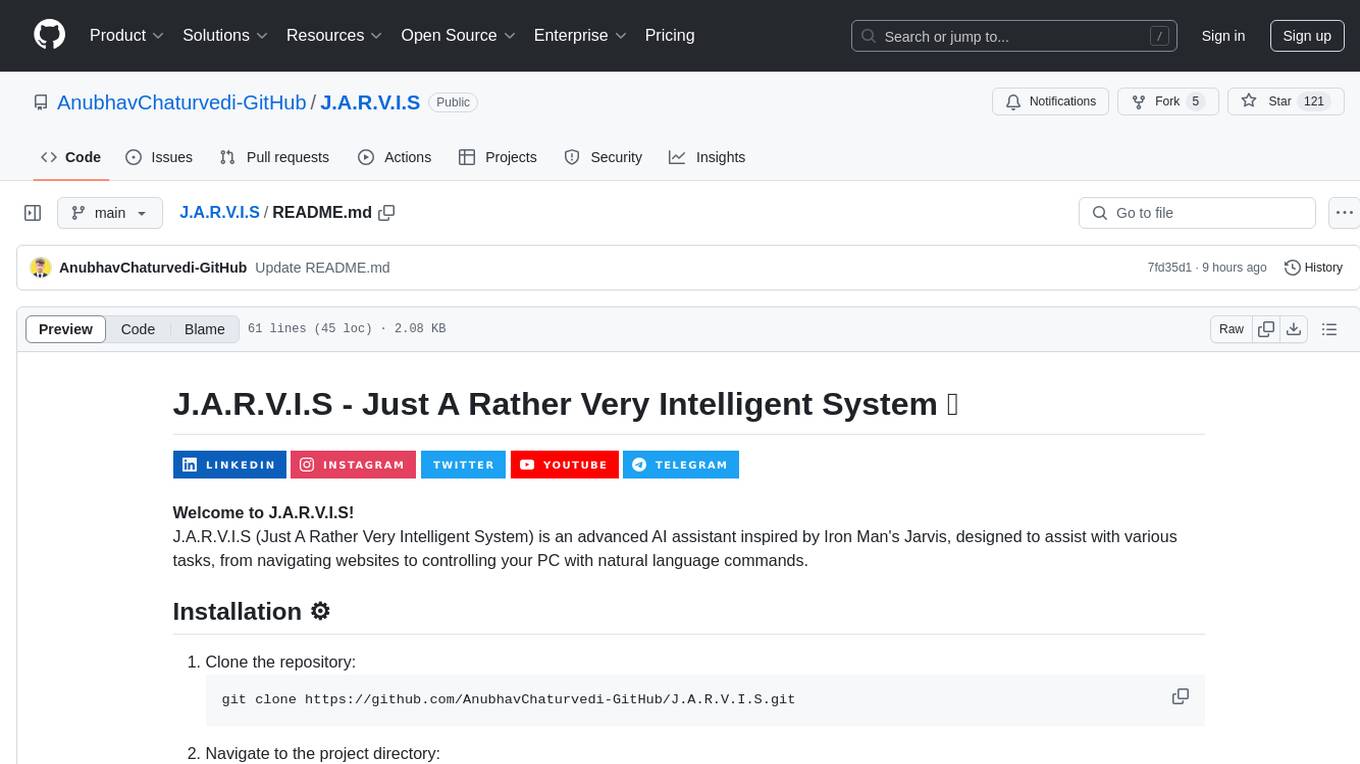
J.A.R.V.I.S
J.A.R.V.I.S (Just A Rather Very Intelligent System) is an advanced AI assistant inspired by Iron Man's Jarvis, designed to assist with various tasks, from navigating websites to controlling your PC with natural language commands.
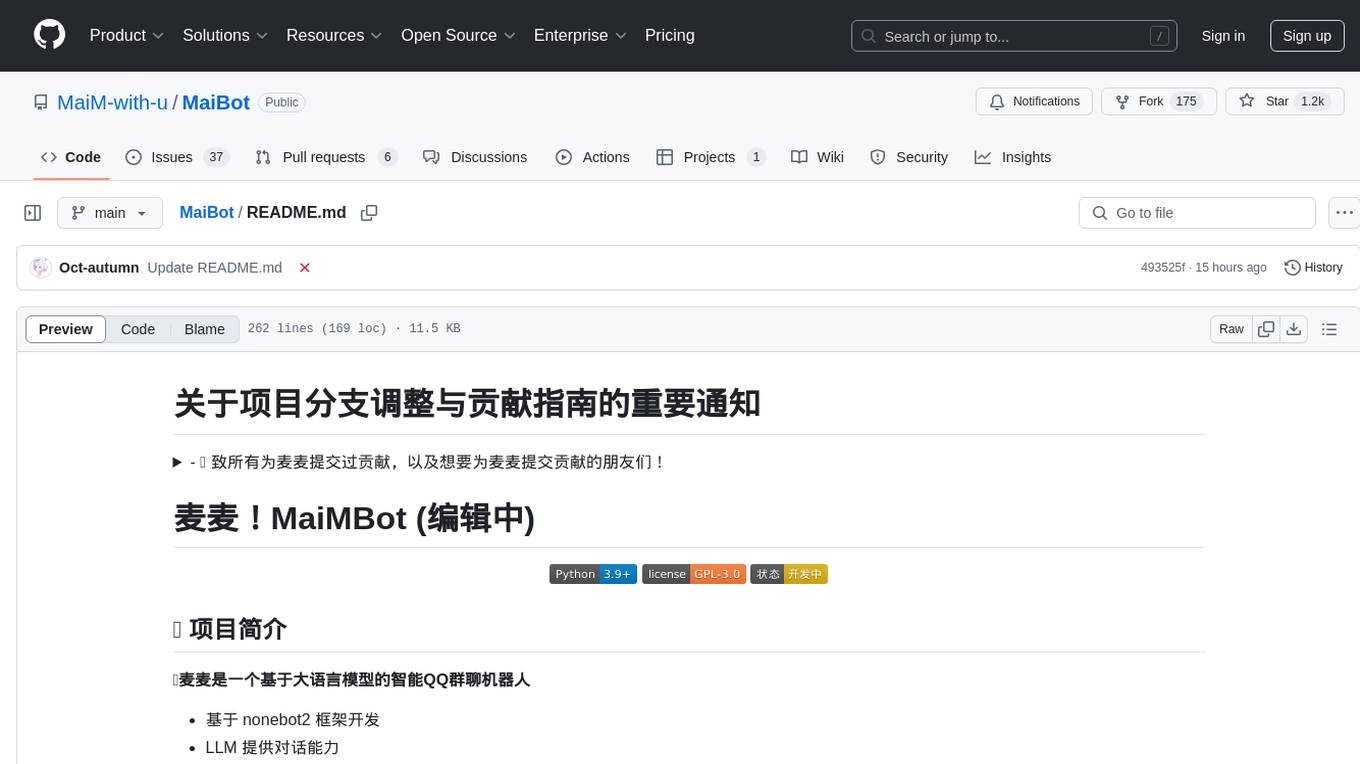
MaiBot
MaiBot is an intelligent QQ group chat bot based on a large language model. It is developed using the nonebot2 framework, with LLM providing conversation abilities, MongoDB for data persistence support, and NapCat as the QQ protocol endpoint support. The project is in active development stage, with features like chat functionality, emoji functionality, schedule management, memory function, knowledge base function, and relationship function planned for future updates. The project aims to create a 'life form' active in QQ group chats, focusing on companionship and creating a more human-like presence rather than a perfect assistant. The application generates content from AI models, so users are advised to discern carefully and not use it for illegal purposes.
20 - OpenAI Gpts
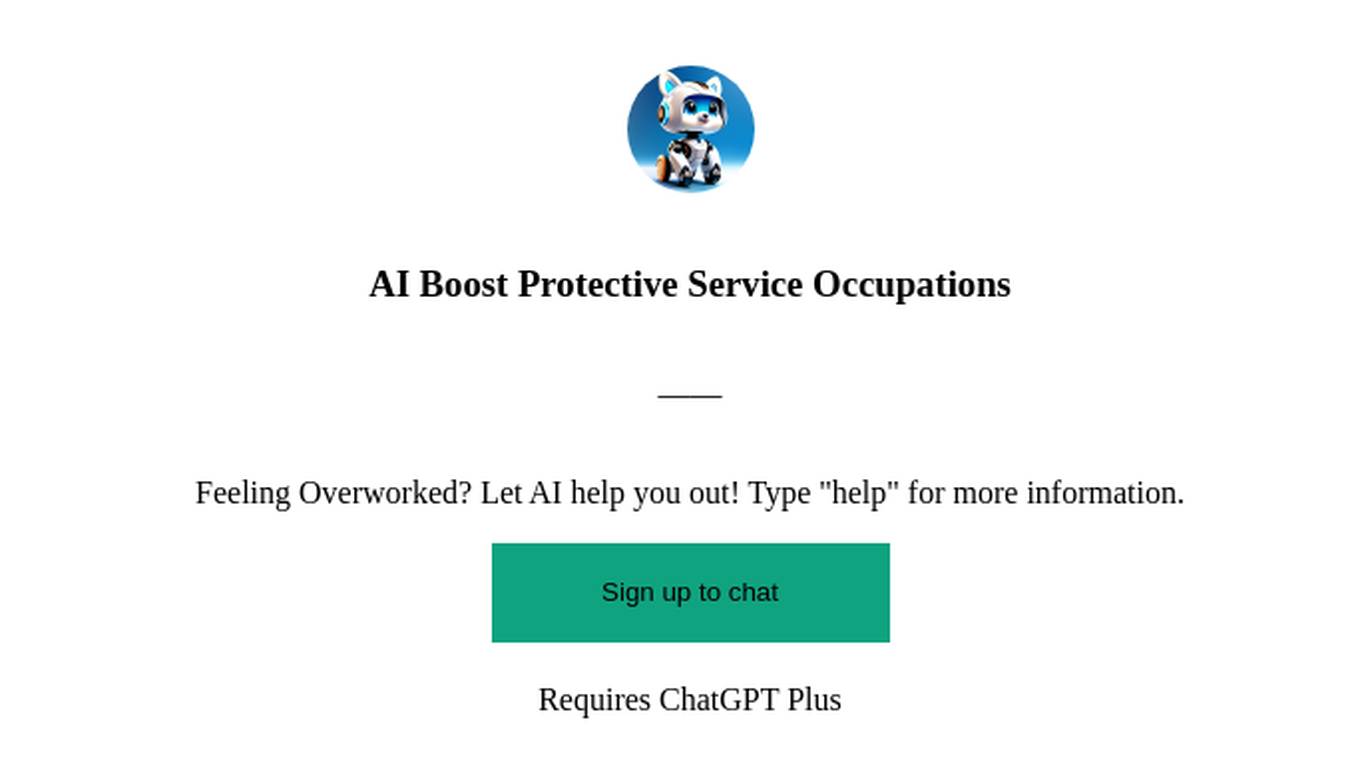
AI Boost Protective Service Occupations
Feeling Overworked? Let AI help you out! Type "help" for more information.
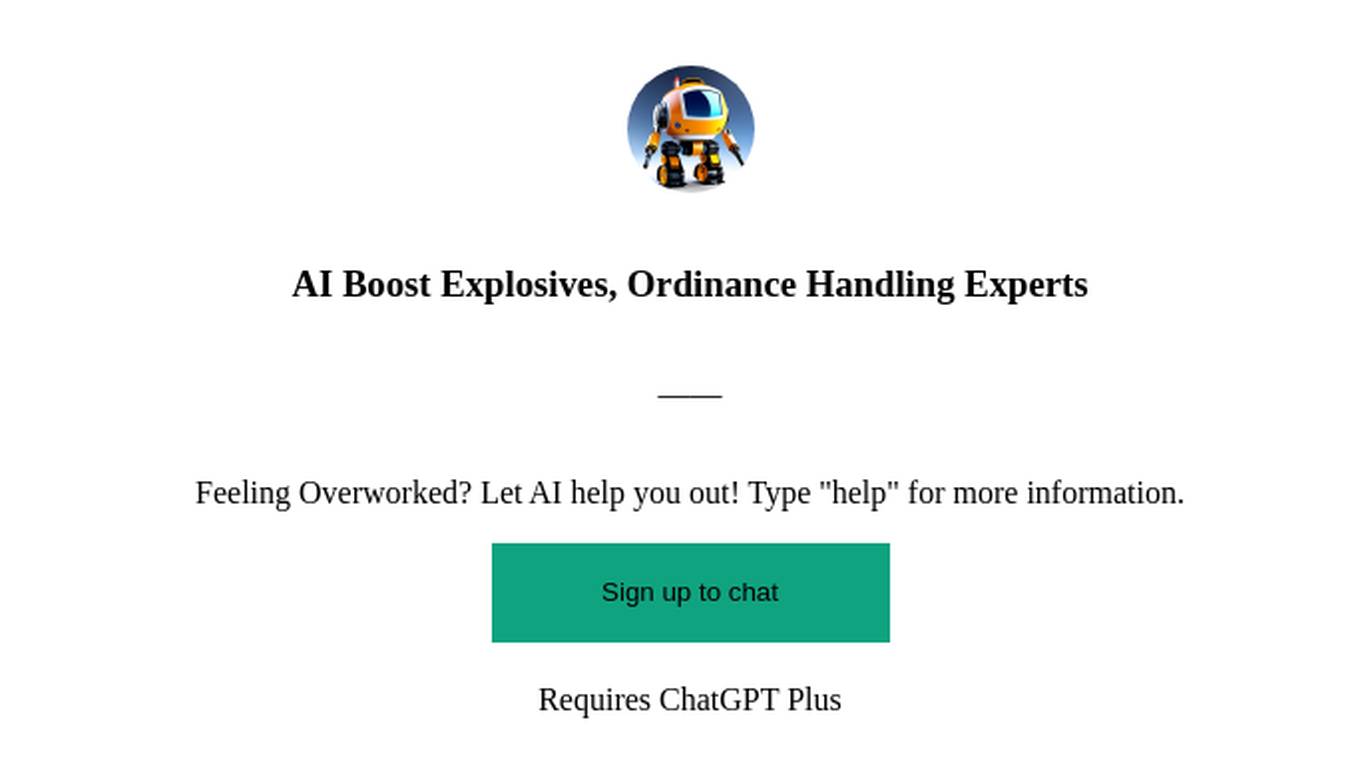
AI Boost Explosives, Ordinance Handling Experts
Feeling Overworked? Let AI help you out! Type "help" for more information.
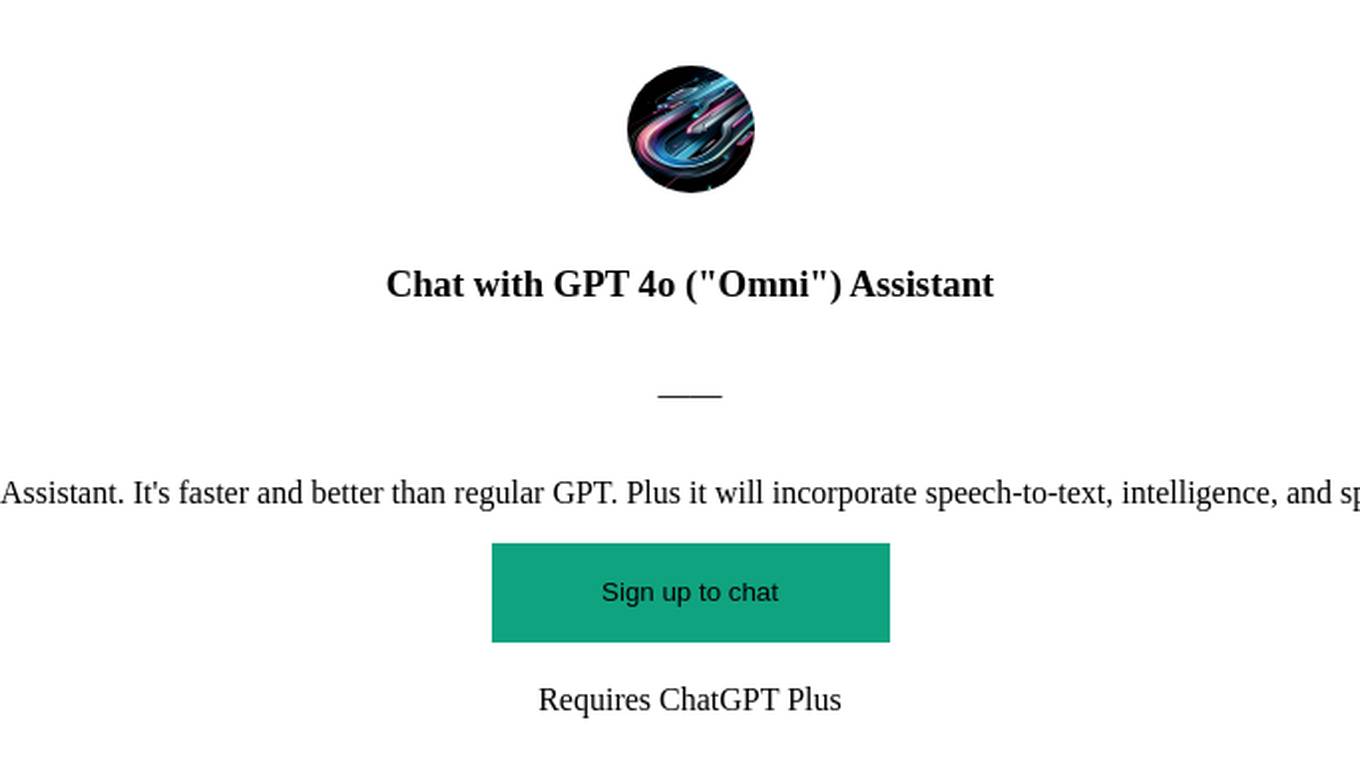
Chat with GPT 4o ("Omni") Assistant
Try the new AI chat model: GPT 4o ("Omni") Assistant. It's faster and better than regular GPT. Plus it will incorporate speech-to-text, intelligence, and speech-to-text capabilities with extra low latency.
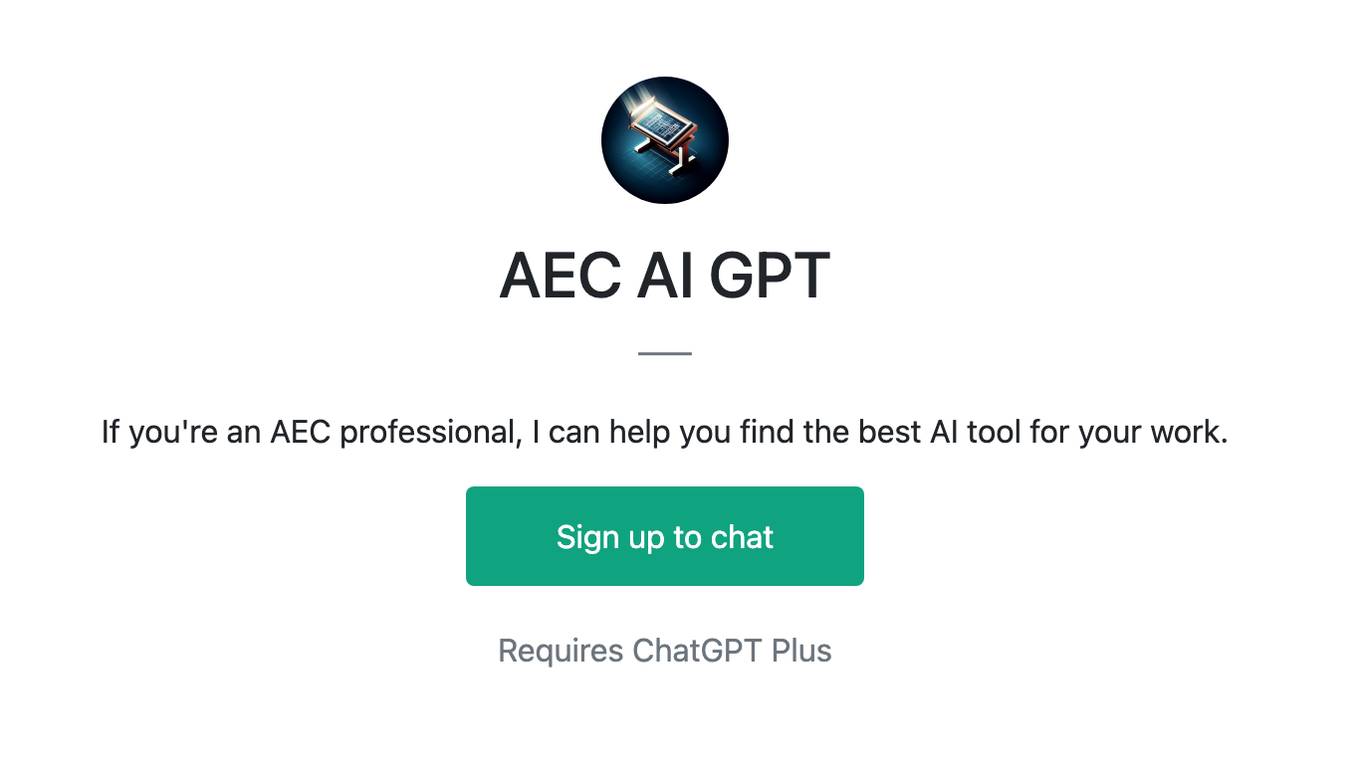
AEC AI GPT
If you're an AEC professional, I can help you find the best AI tool for your work.
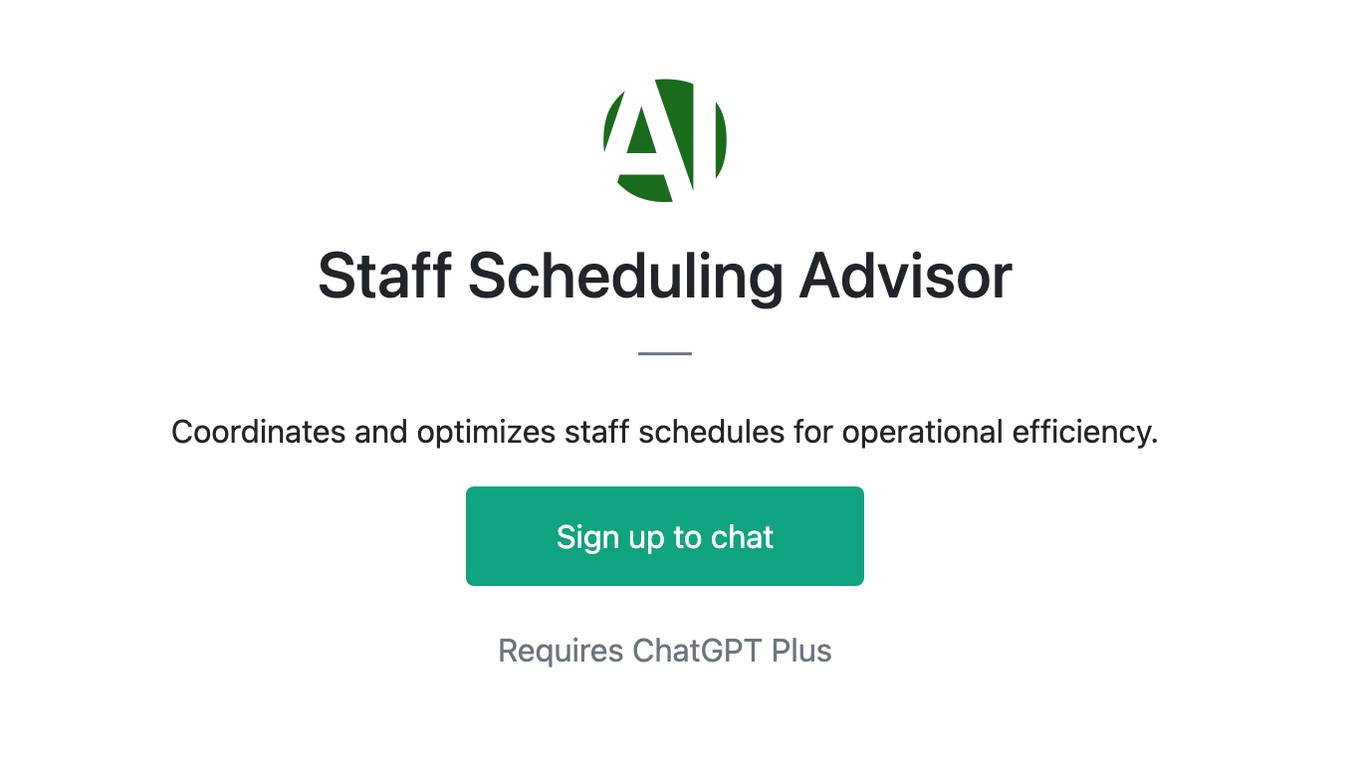
Staff Scheduling Advisor
Coordinates and optimizes staff schedules for operational efficiency.
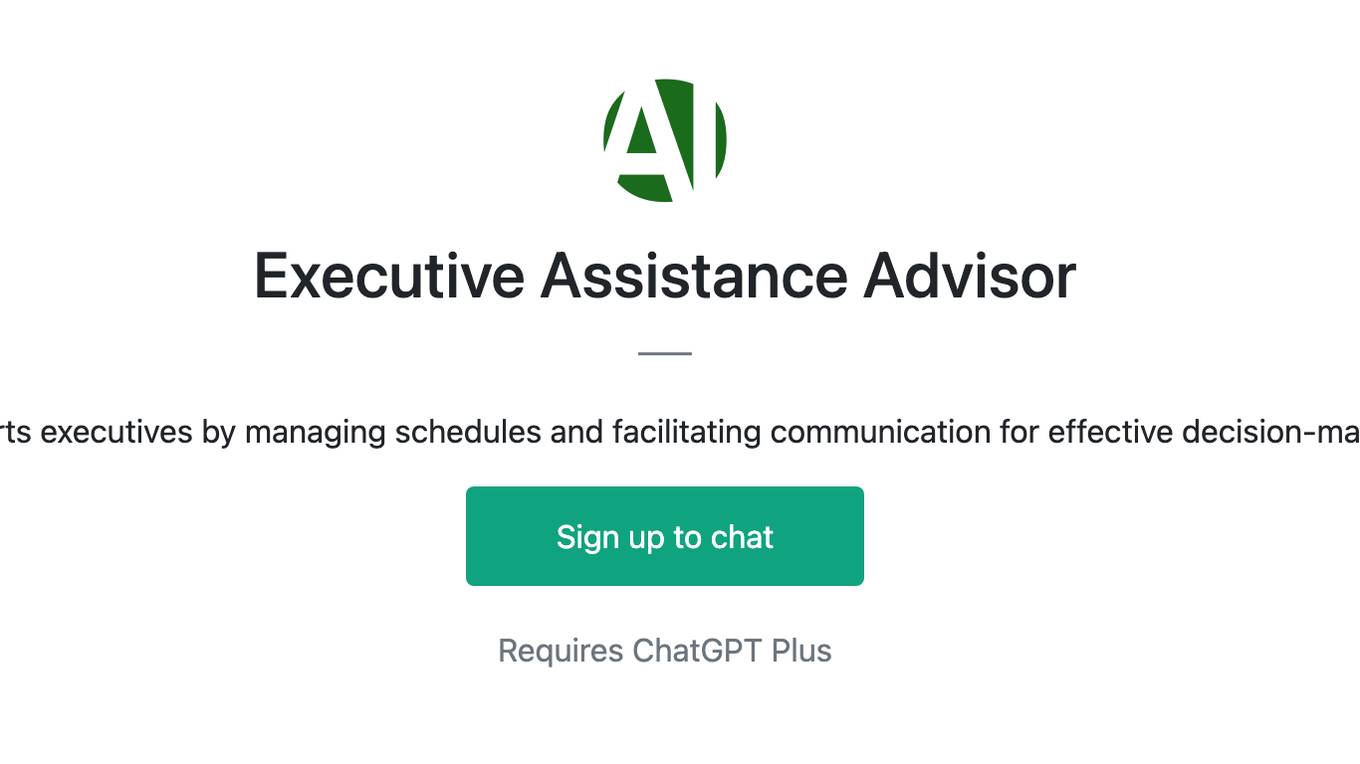
Executive Assistance Advisor
Supports executives by managing schedules and facilitating communication for effective decision-making.
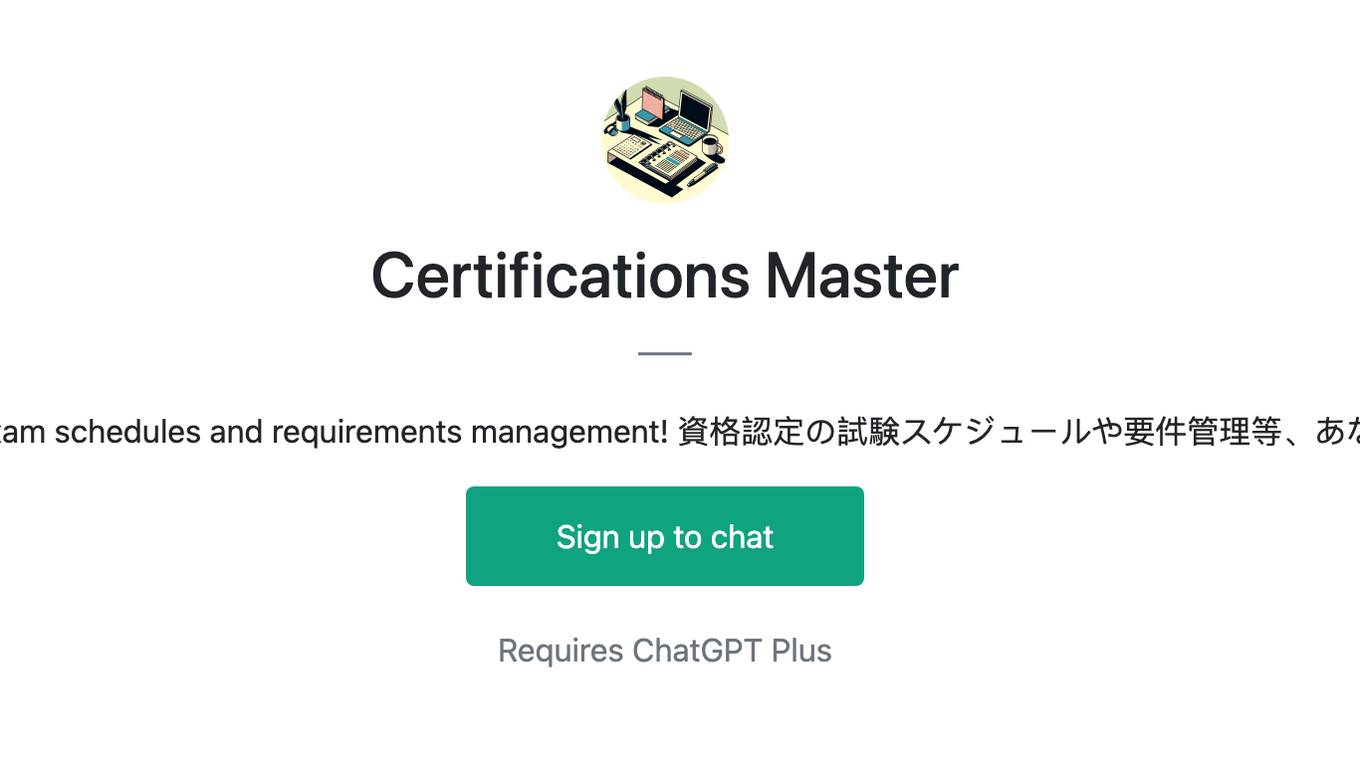
Certifications Master
Your go-to assistant for certification exam schedules and requirements management! 資格認定の試験スケジュールや要件管理等、あなたのお役に立つアシスタントです!
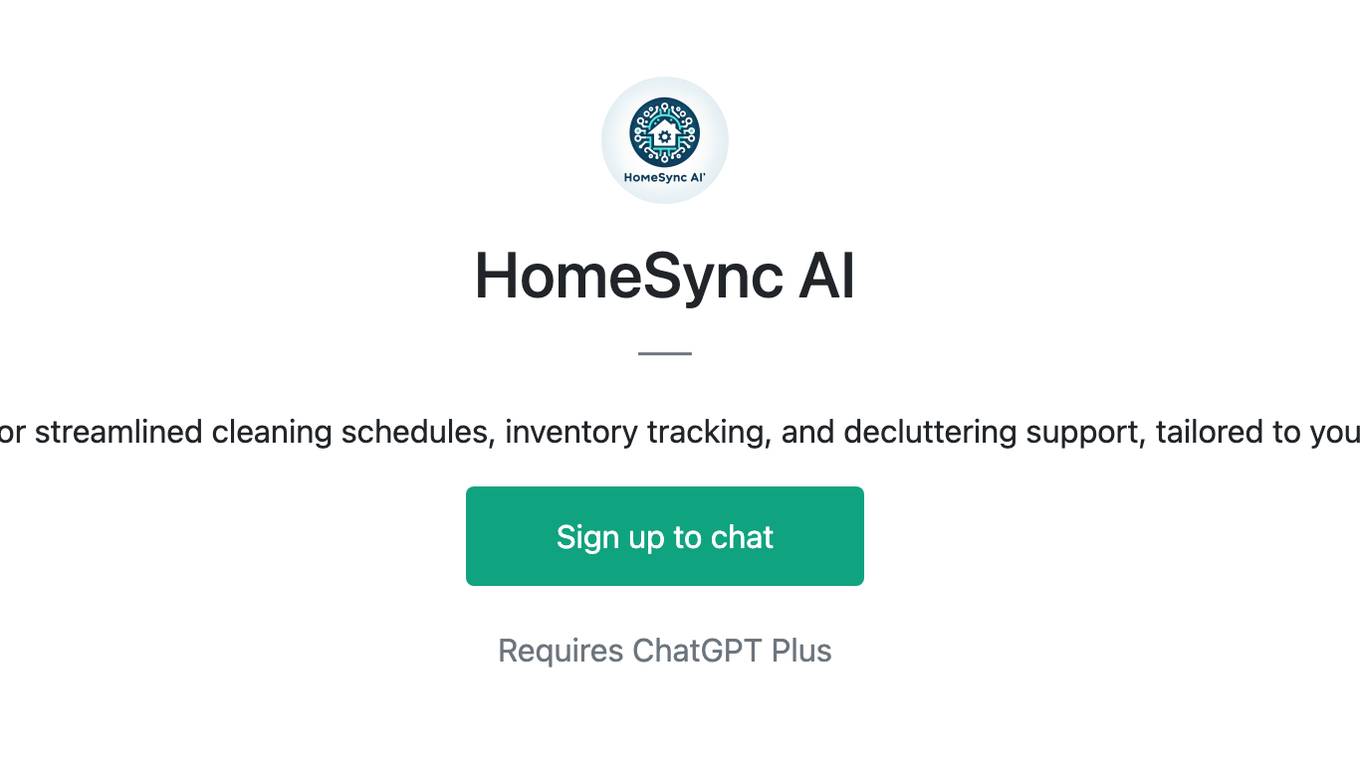
HomeSync AI
Your AI home organizer for streamlined cleaning schedules, inventory tracking, and decluttering support, tailored to your household dynamics.
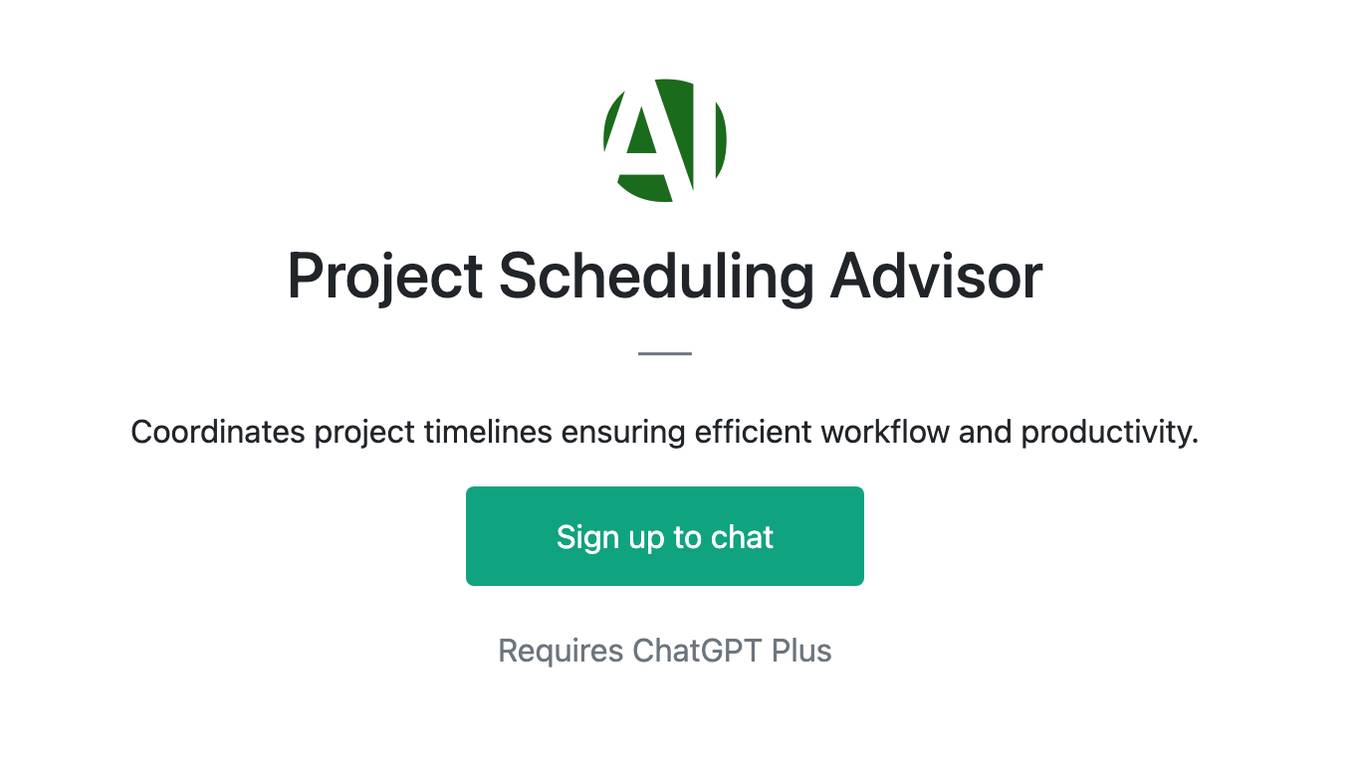
Project Scheduling Advisor
Coordinates project timelines ensuring efficient workflow and productivity.

